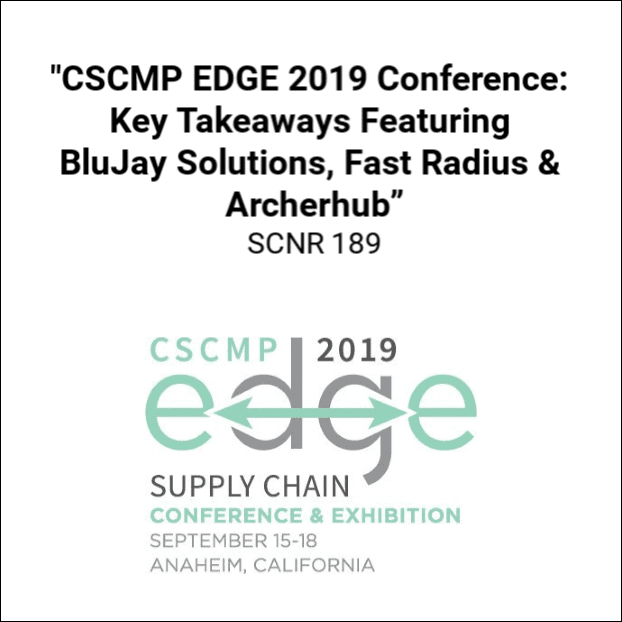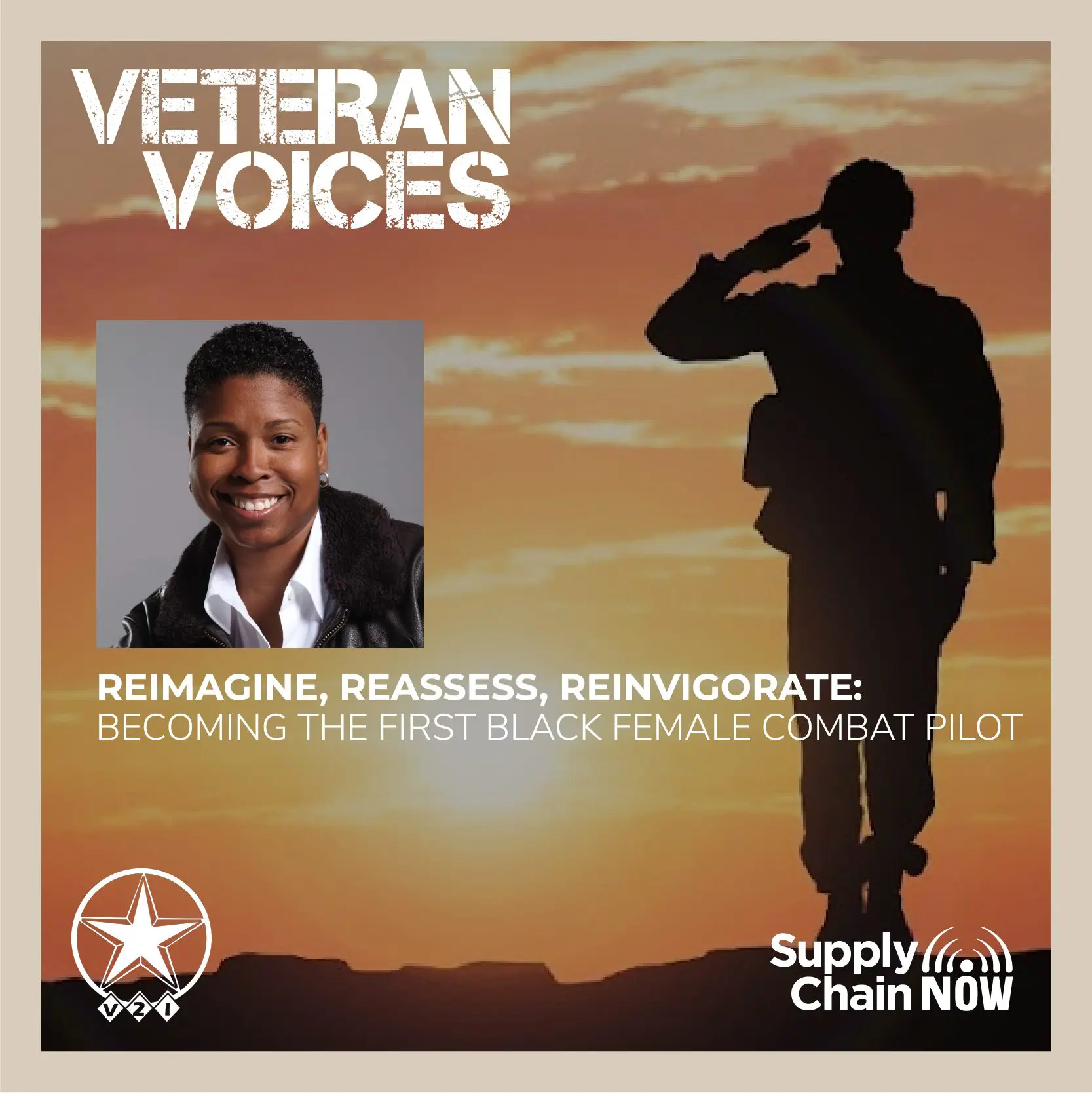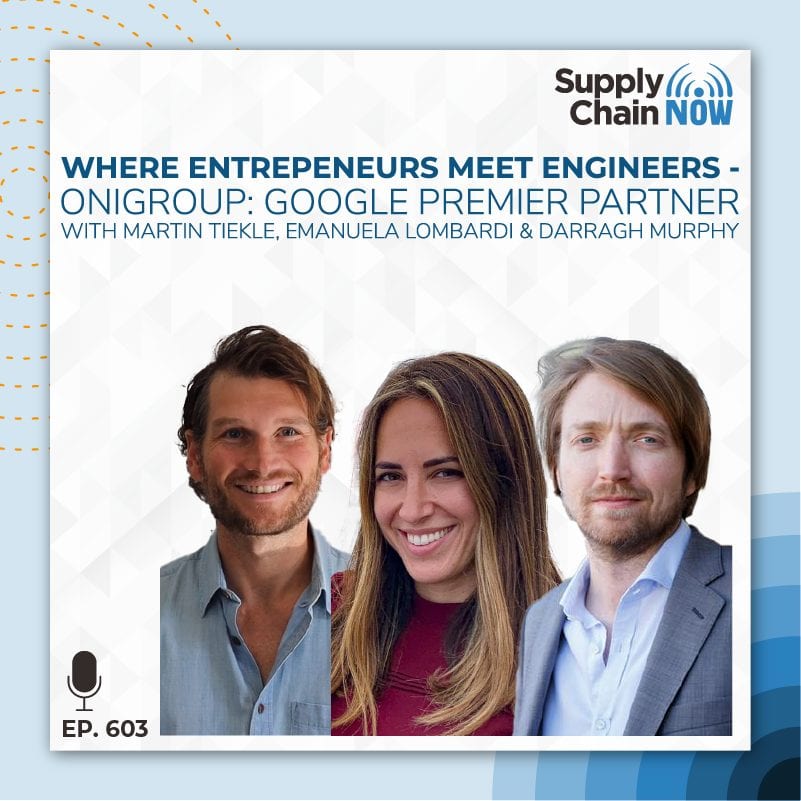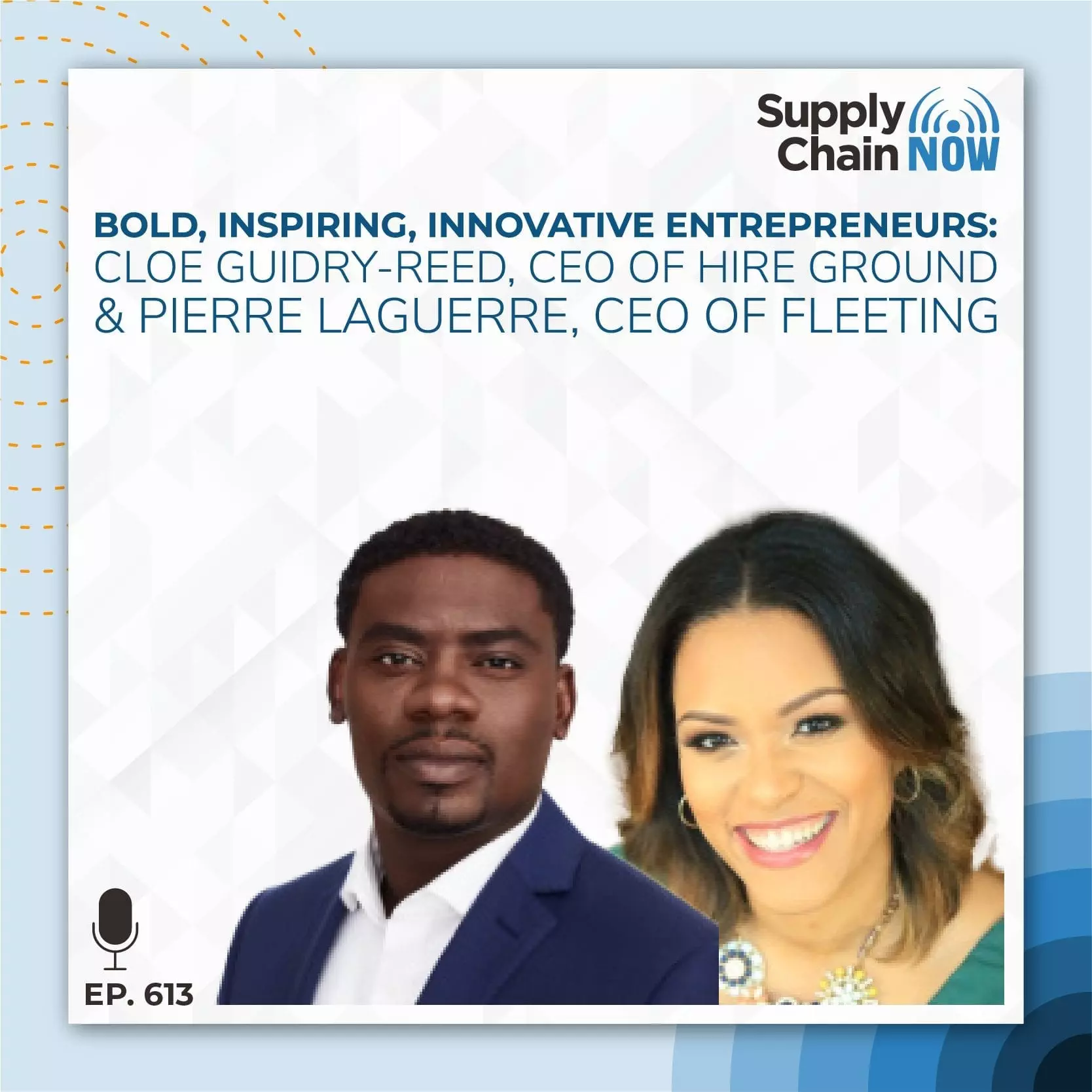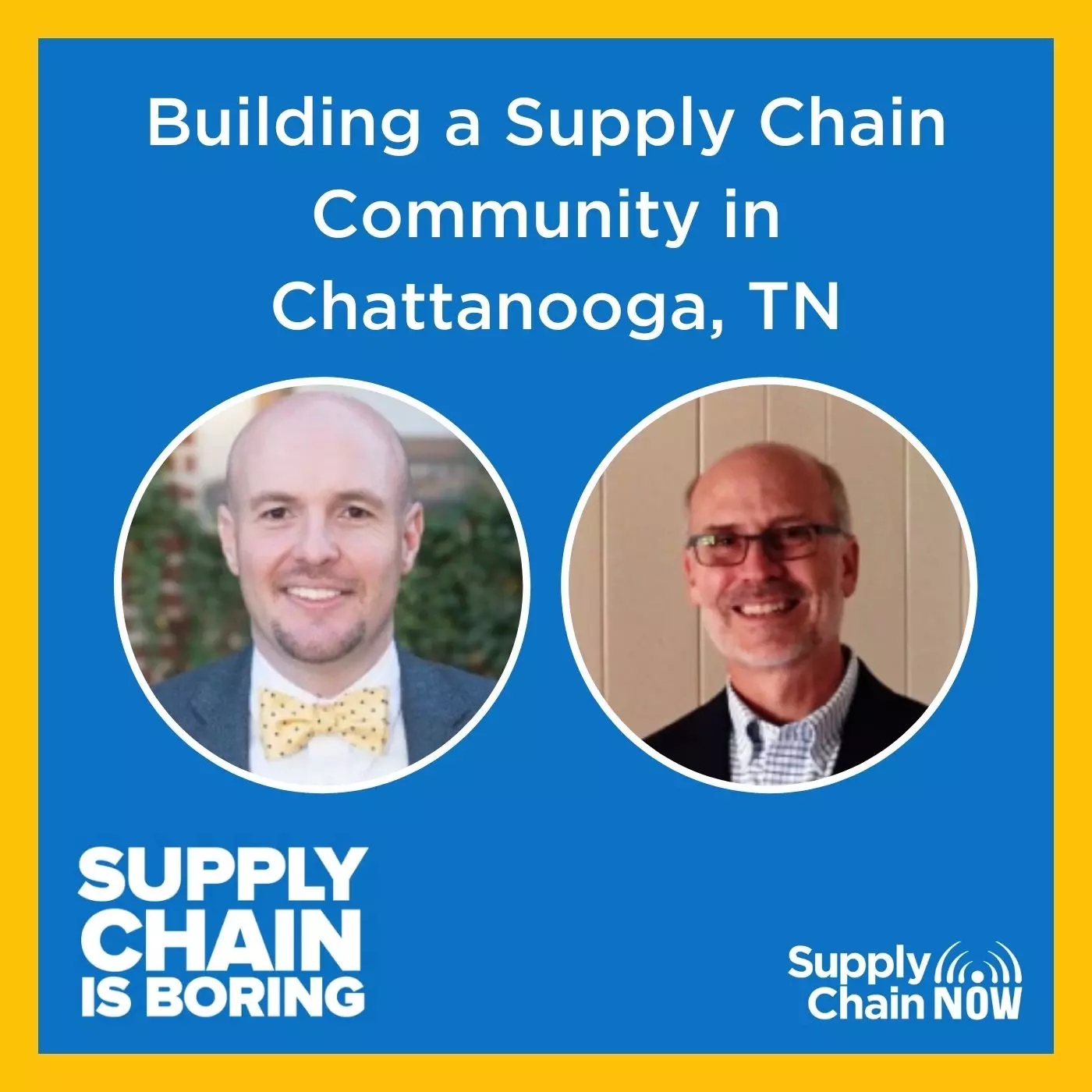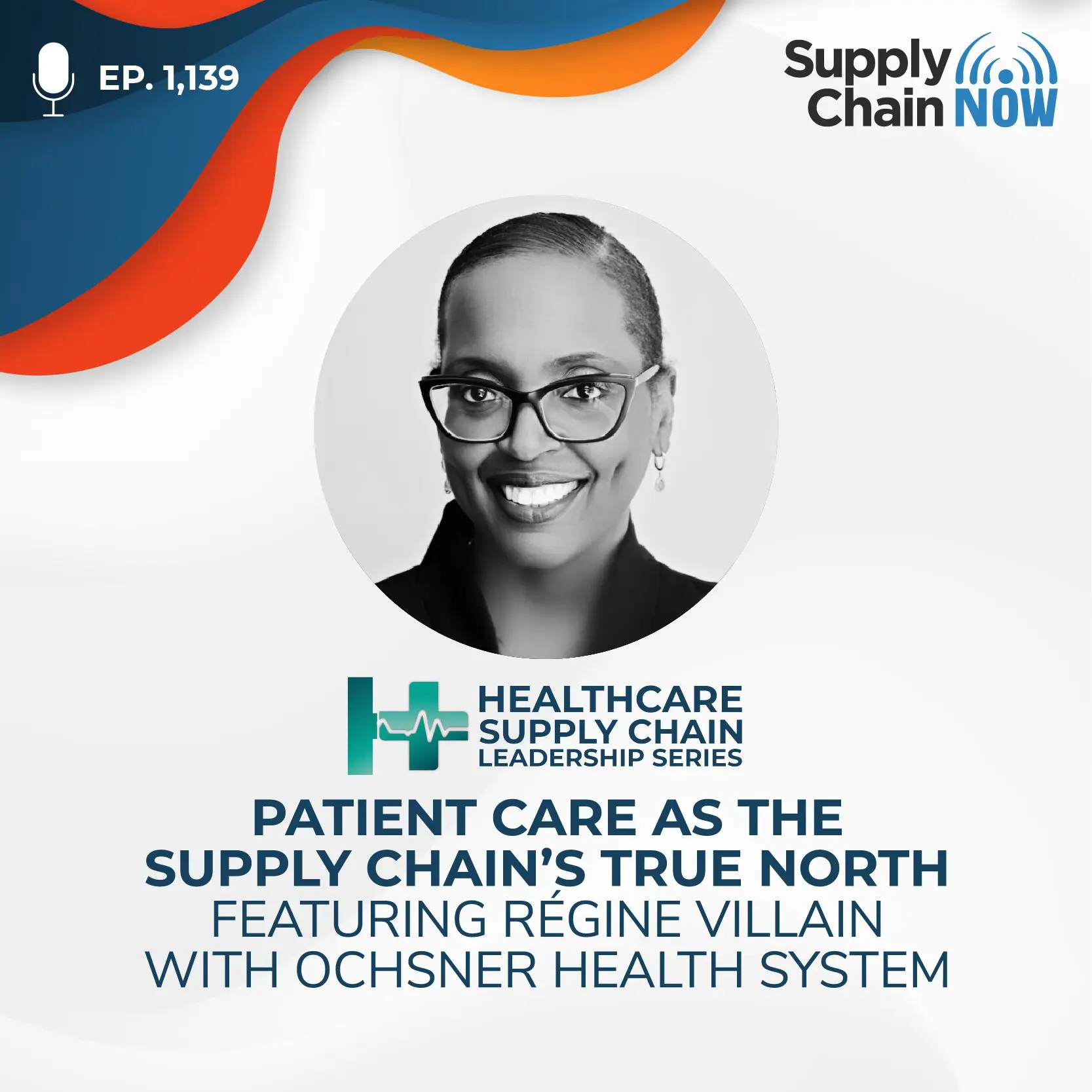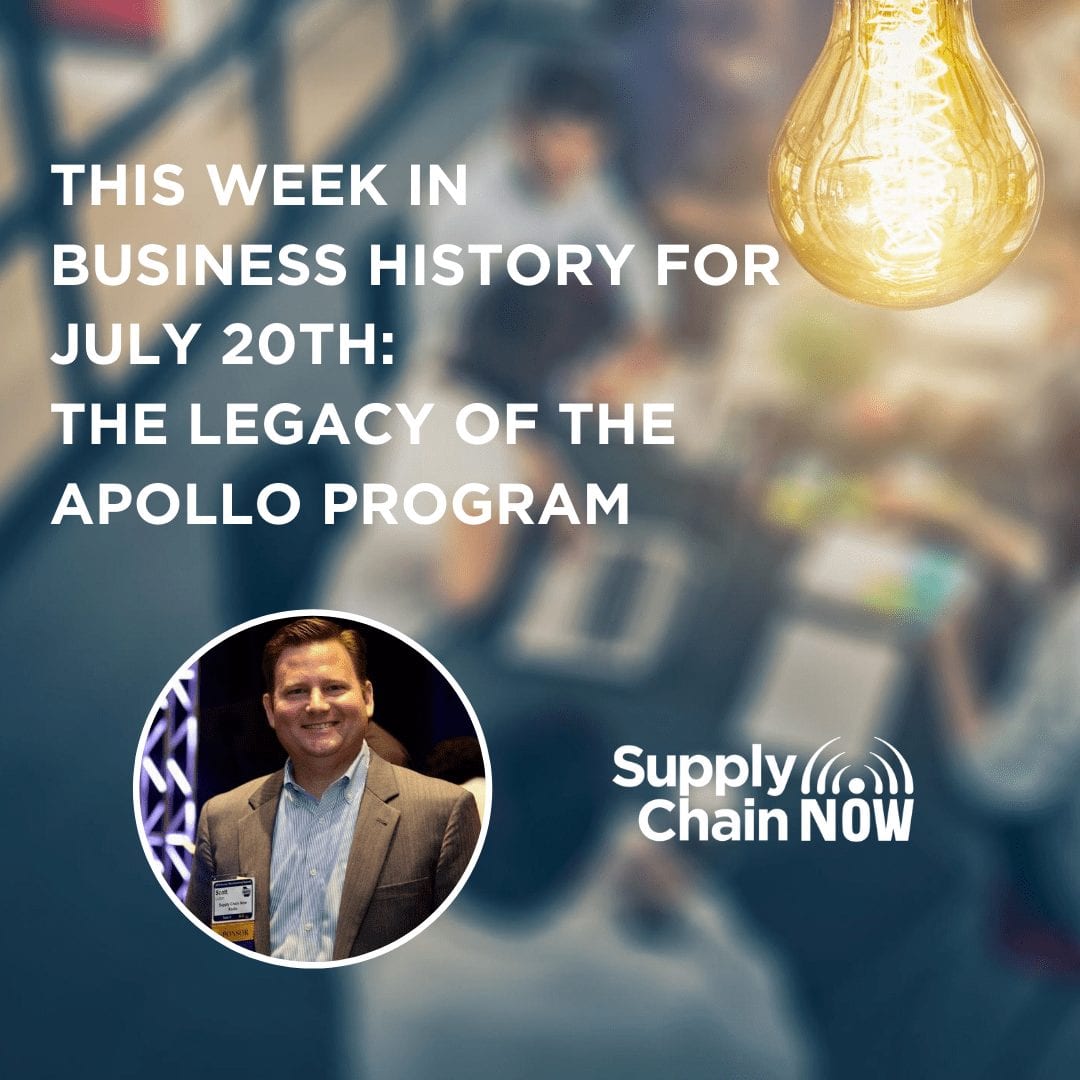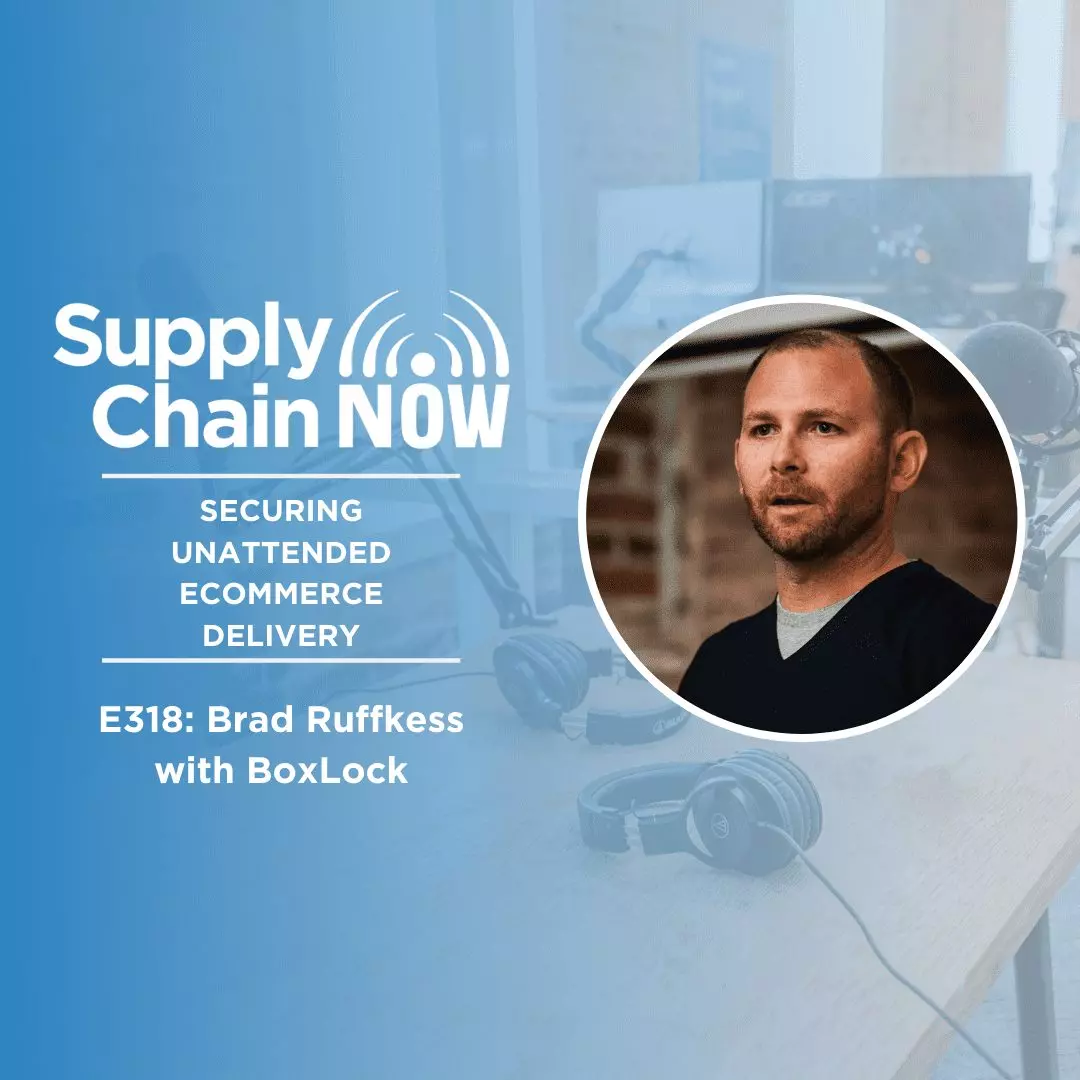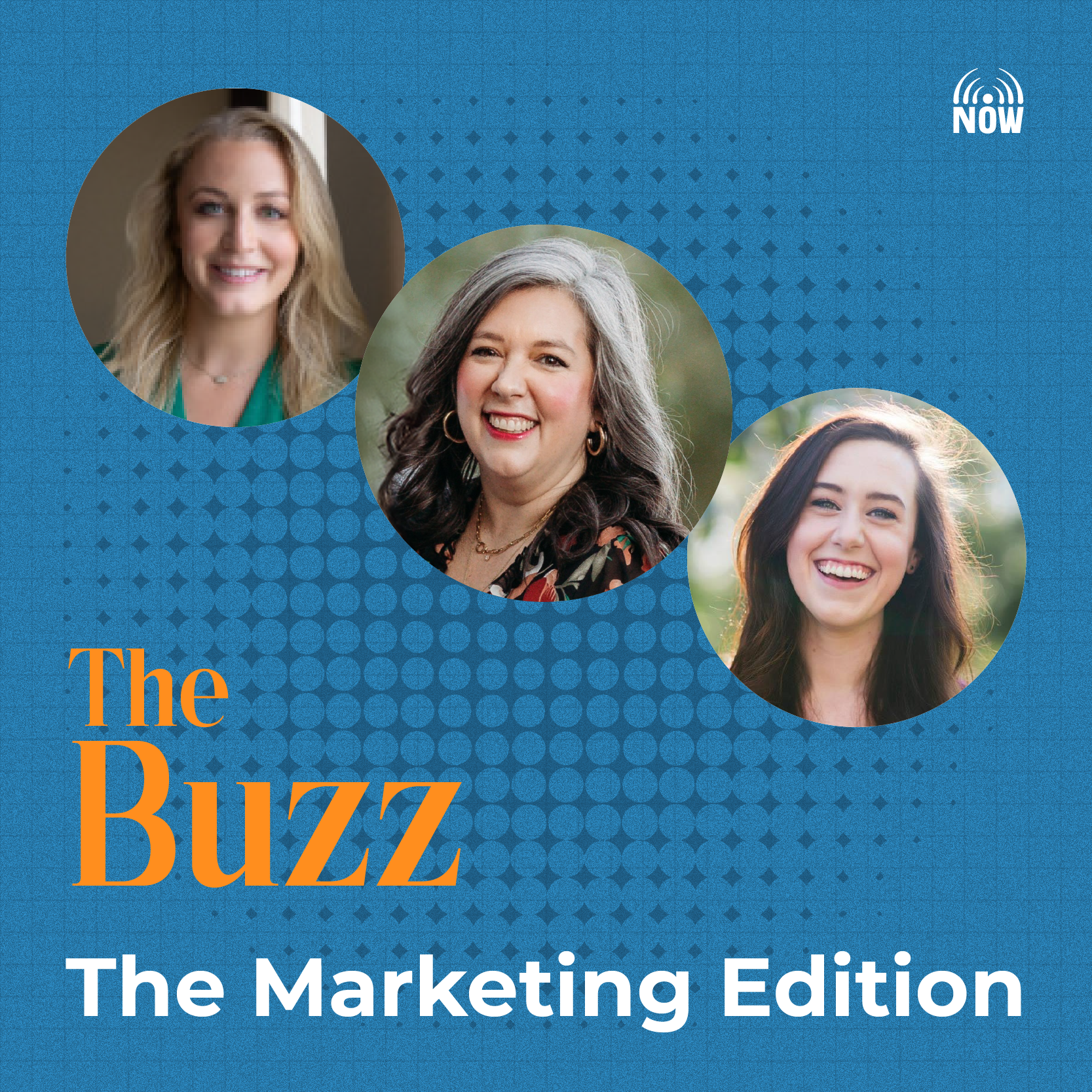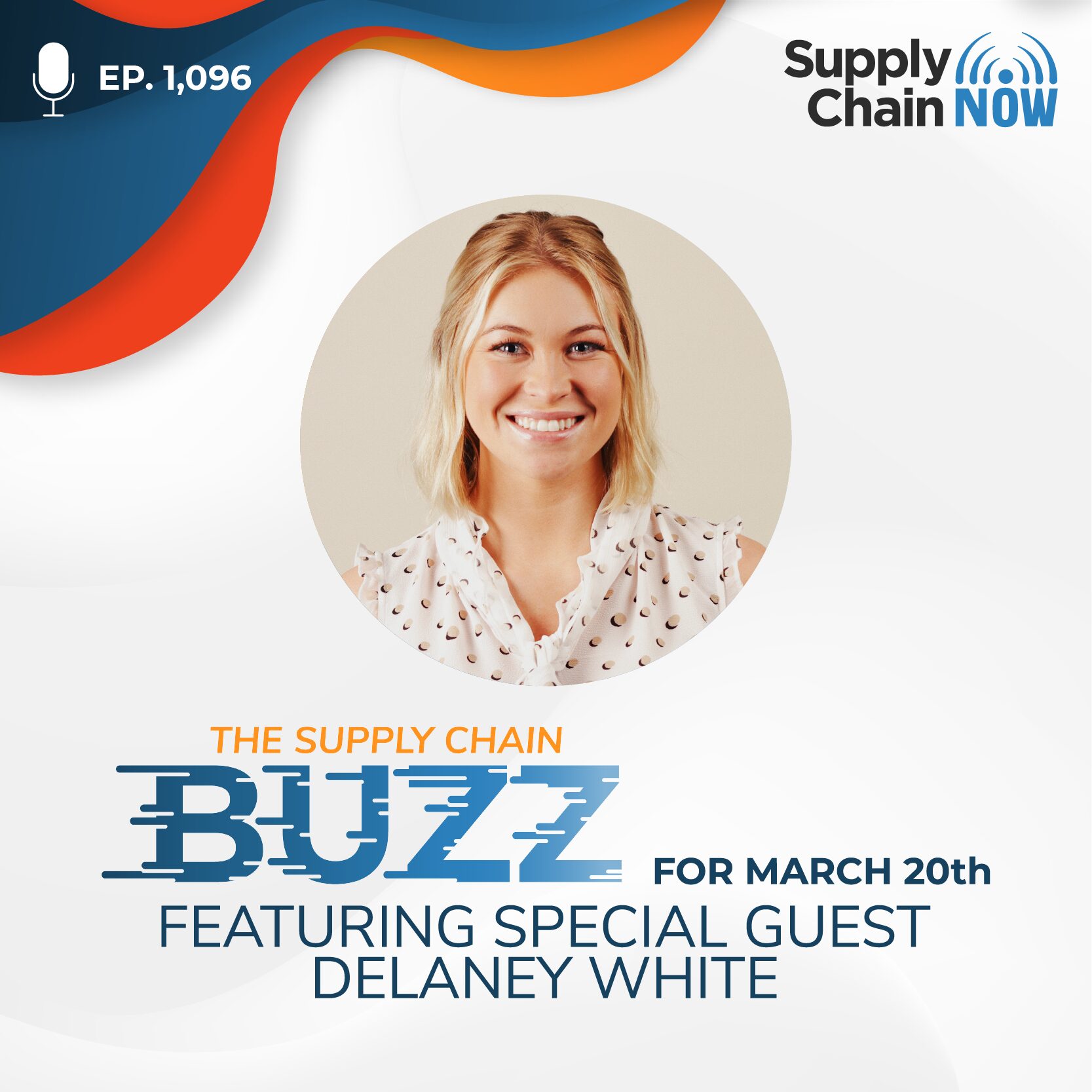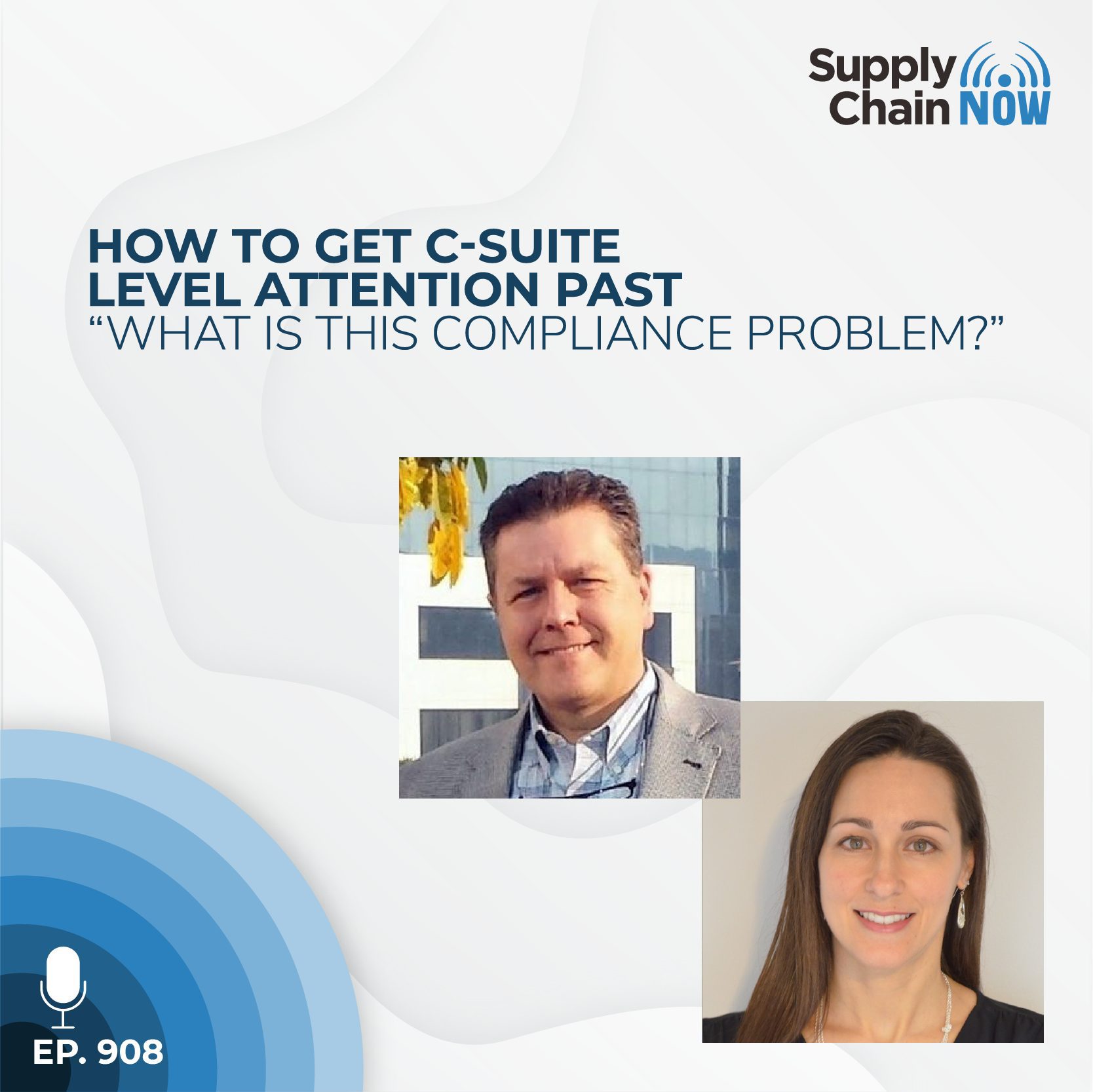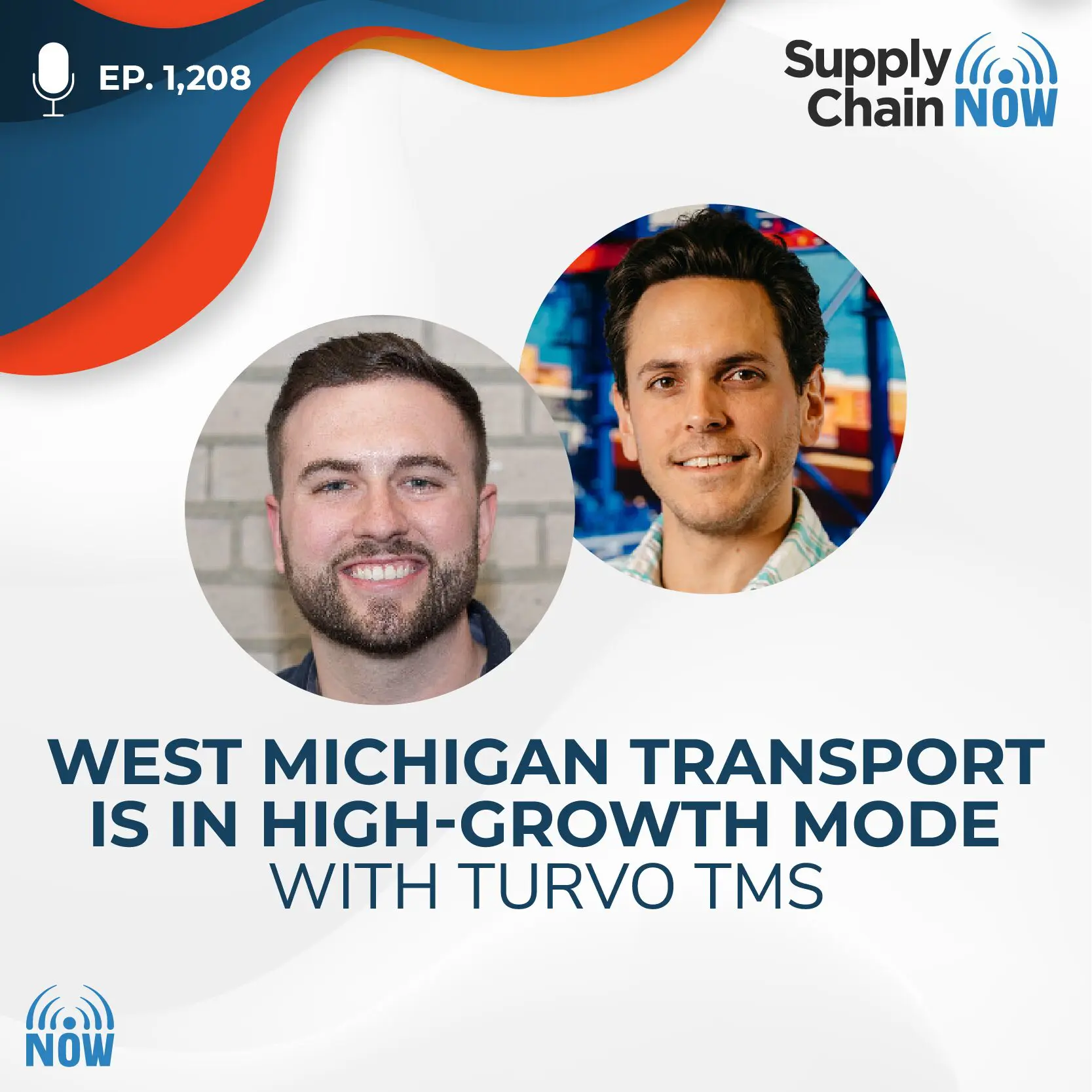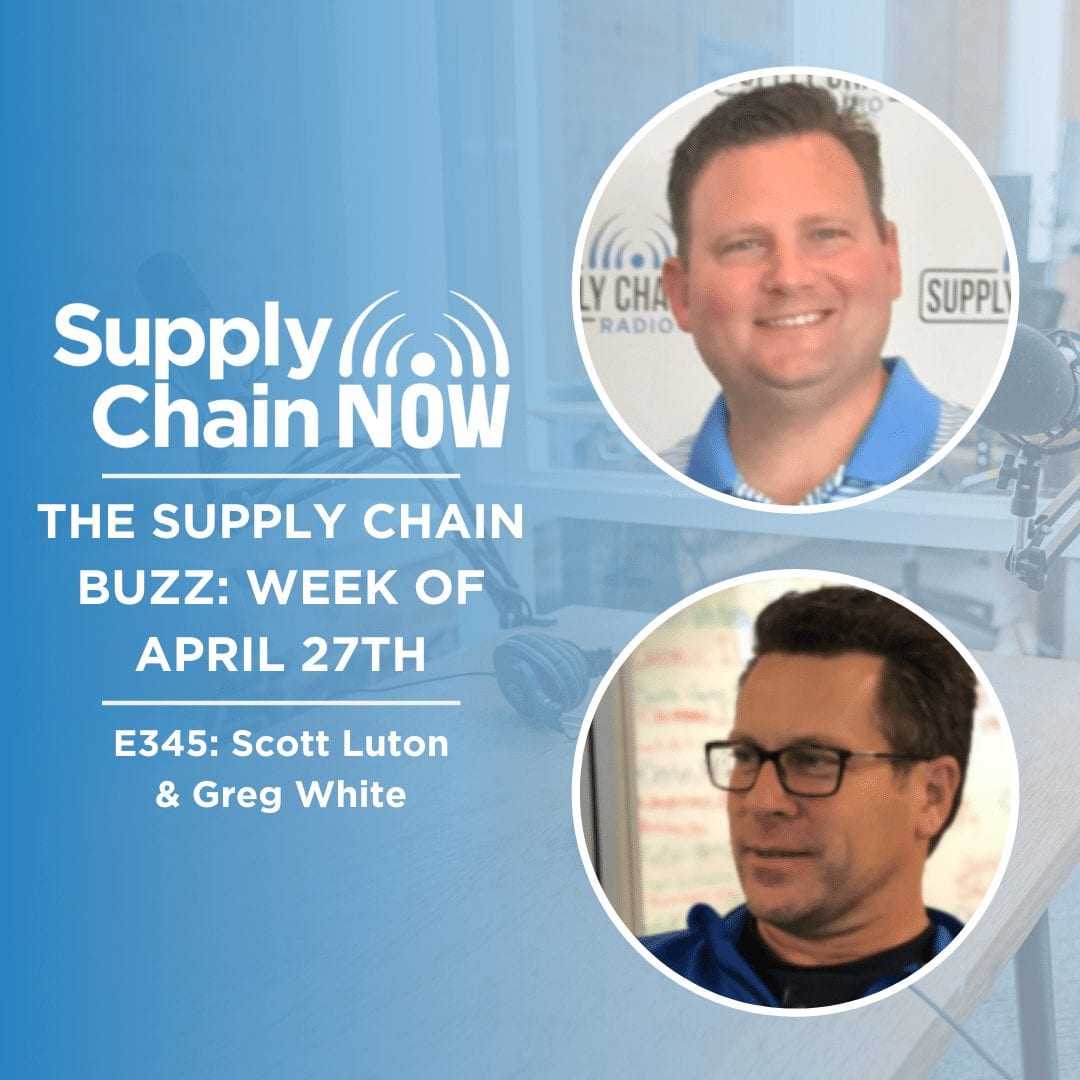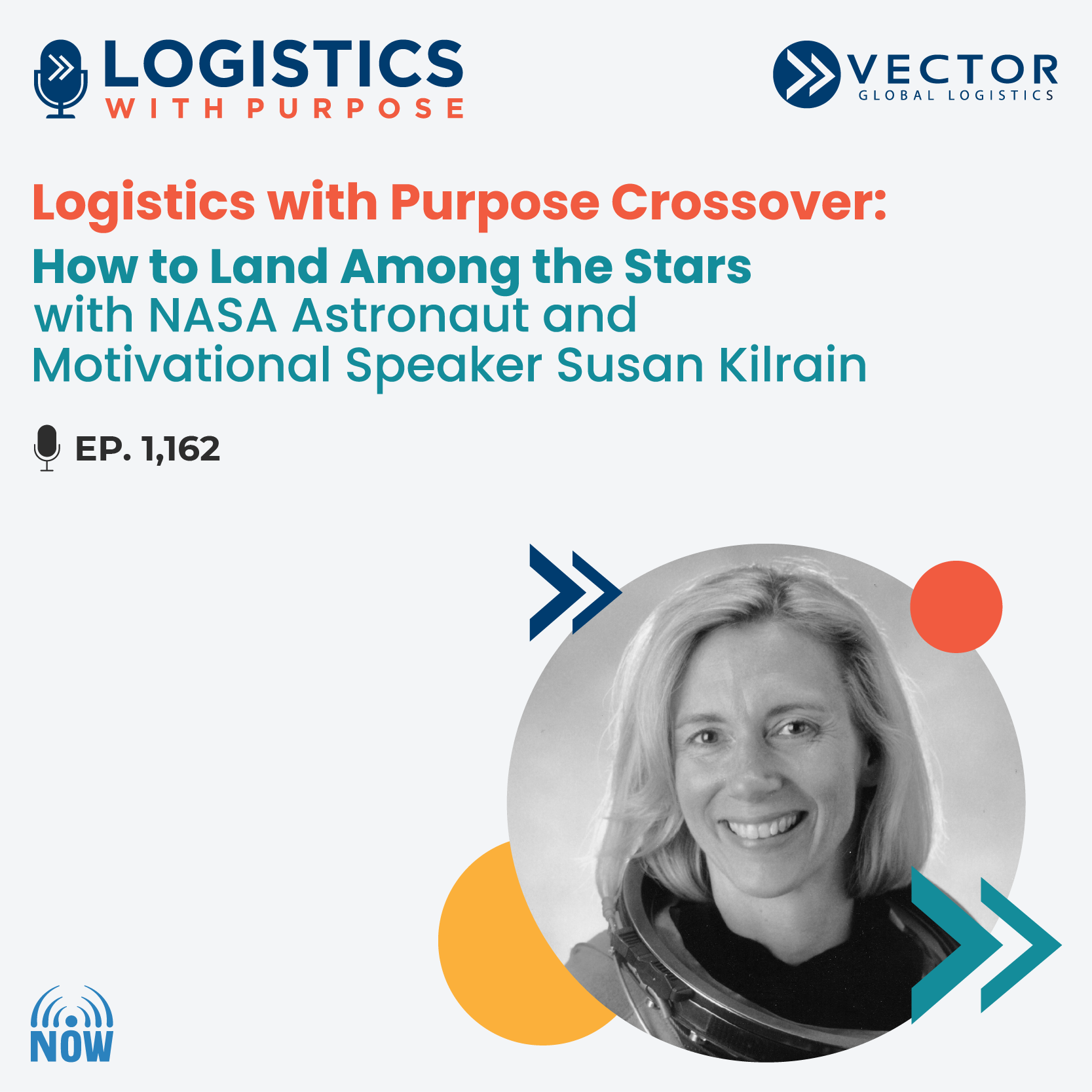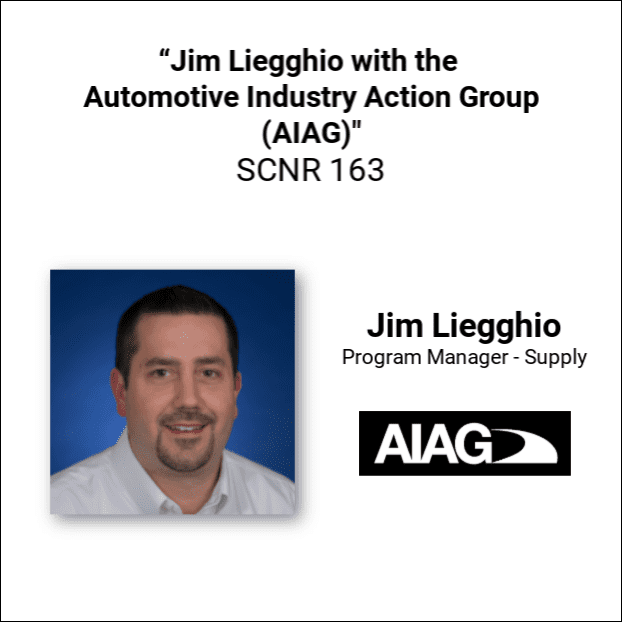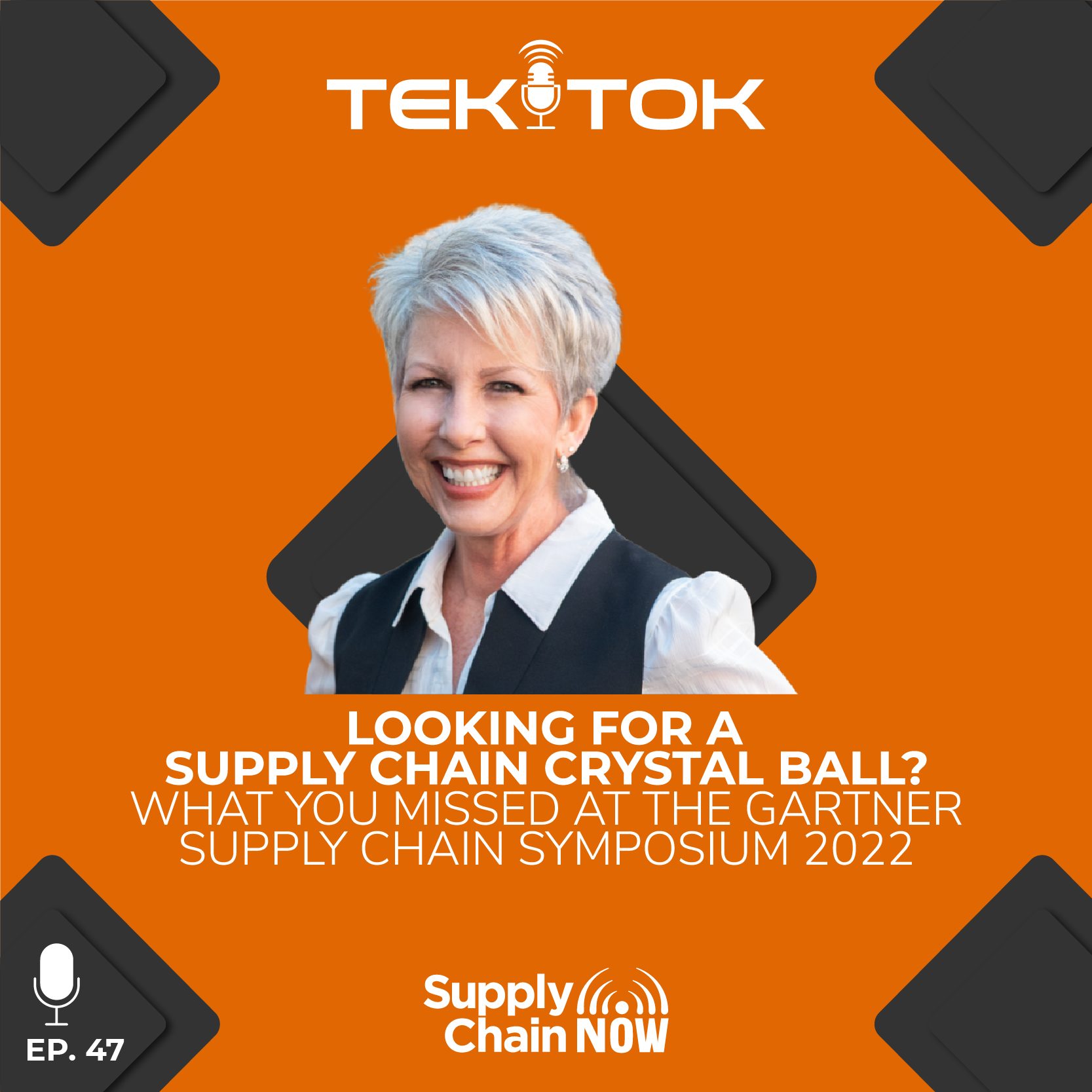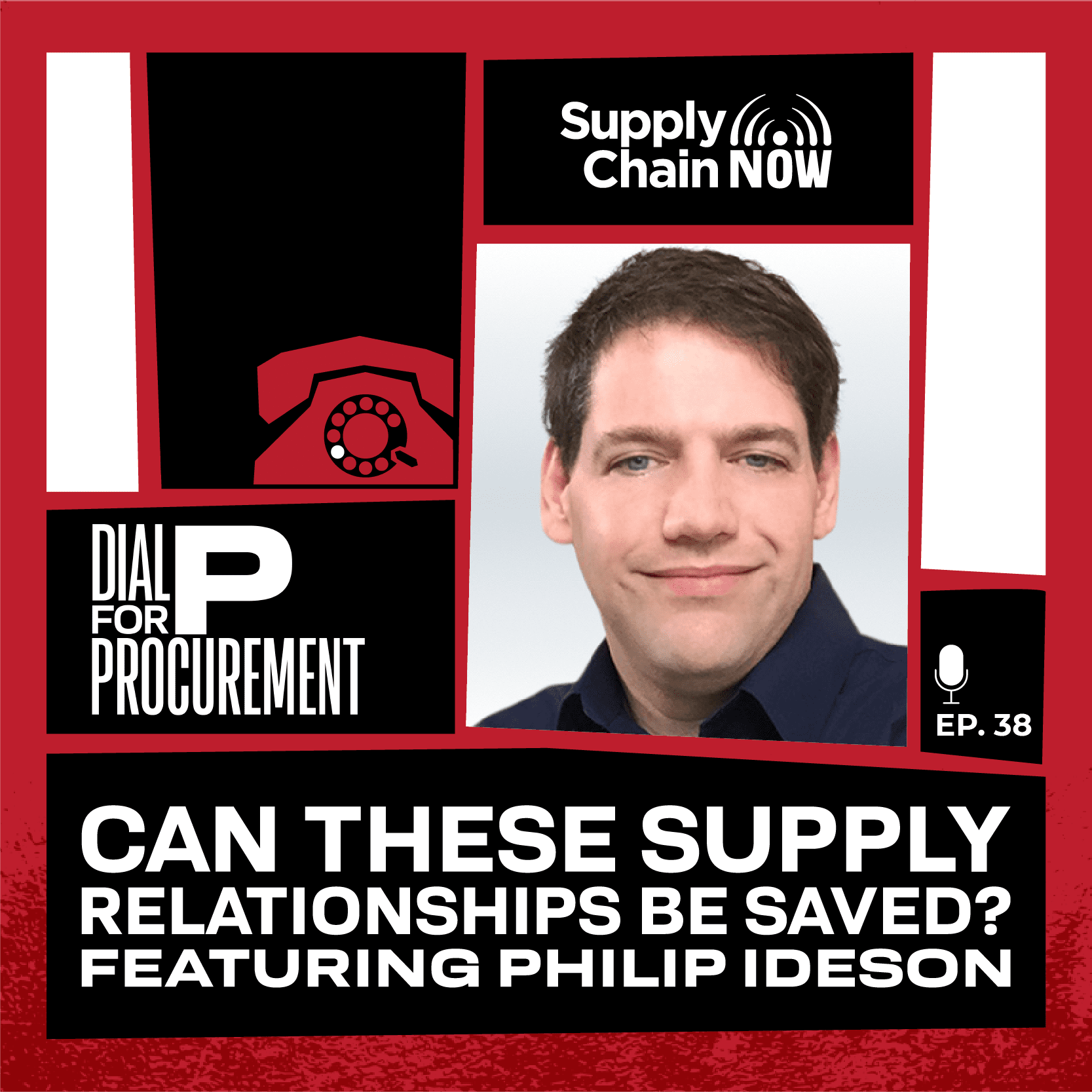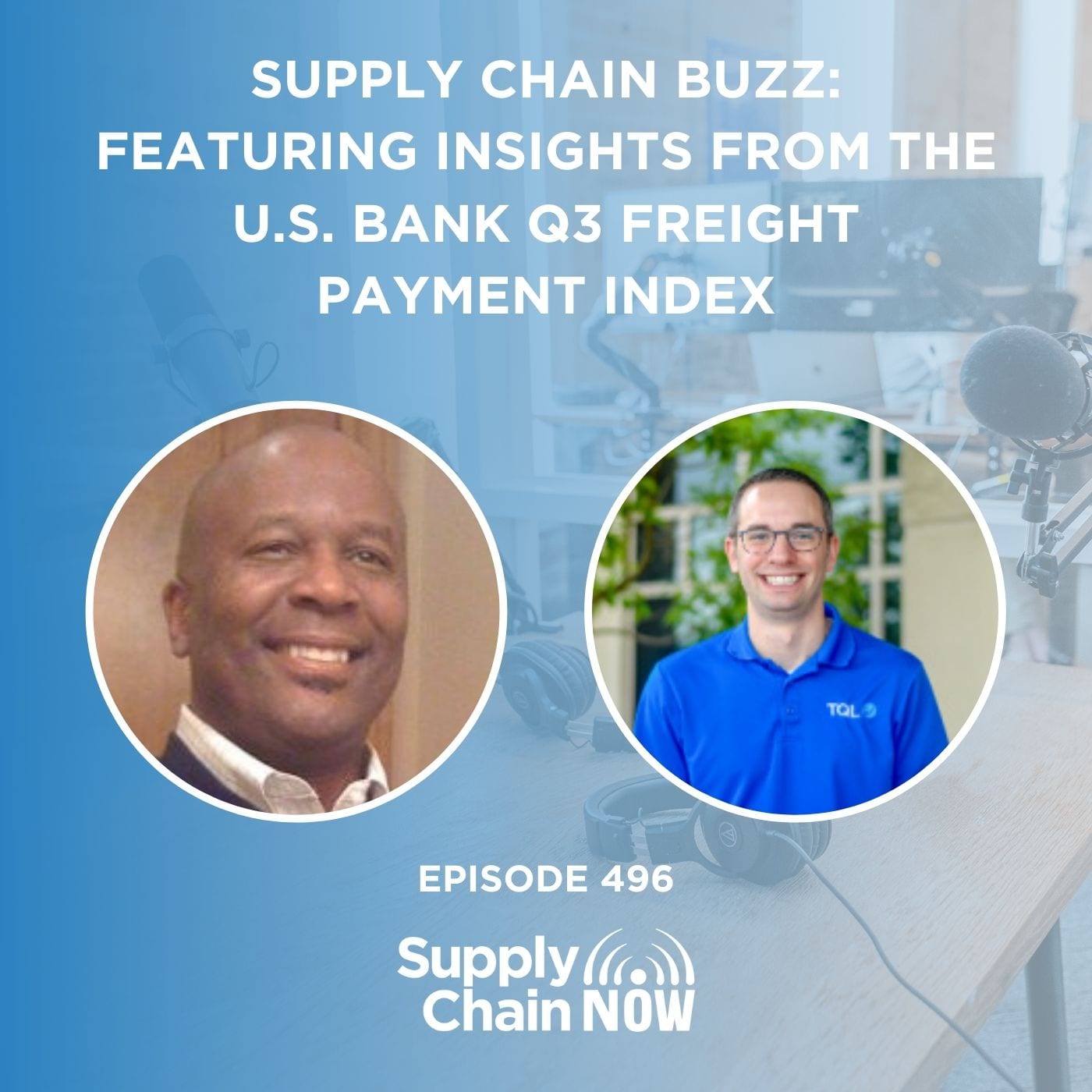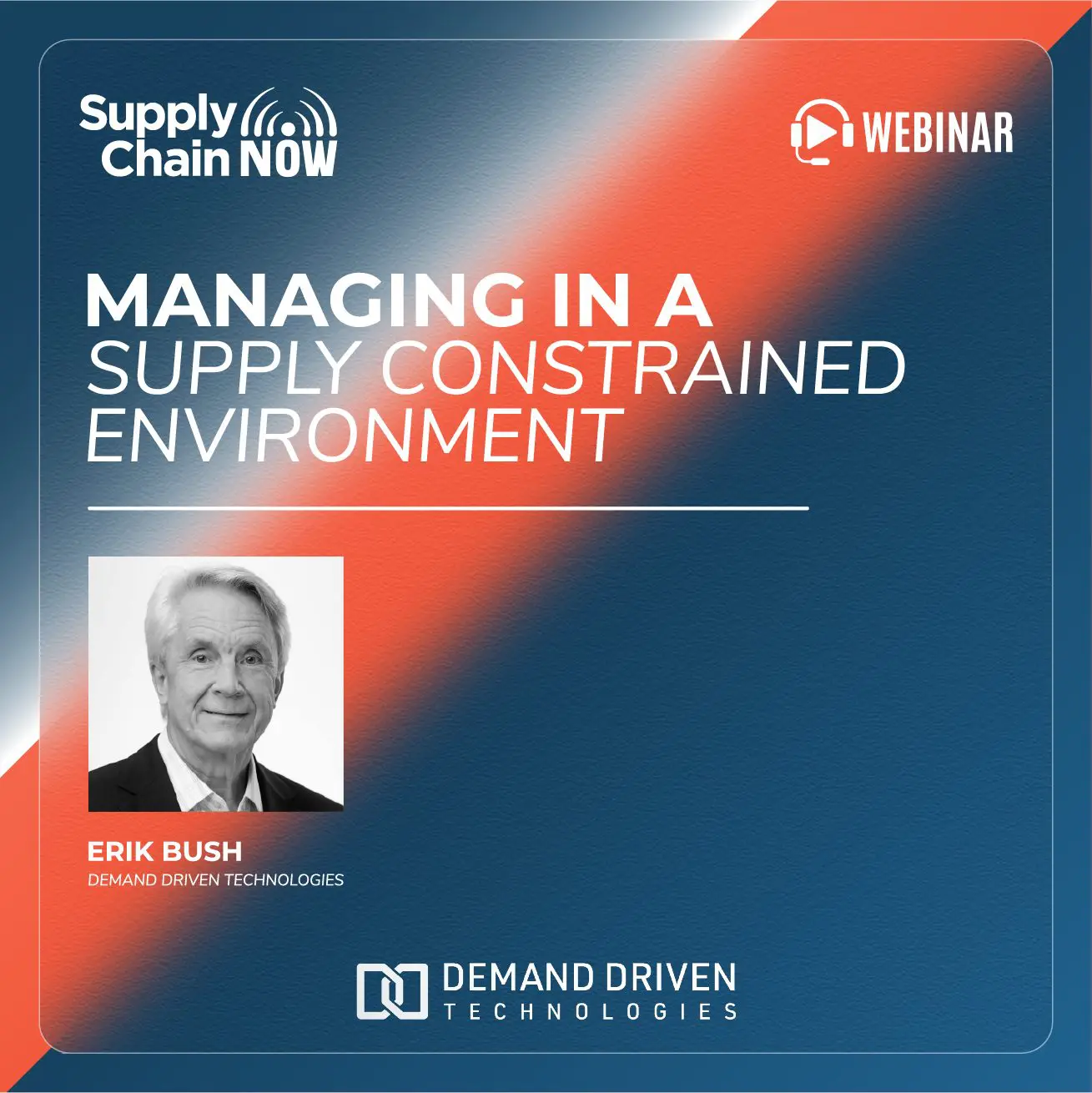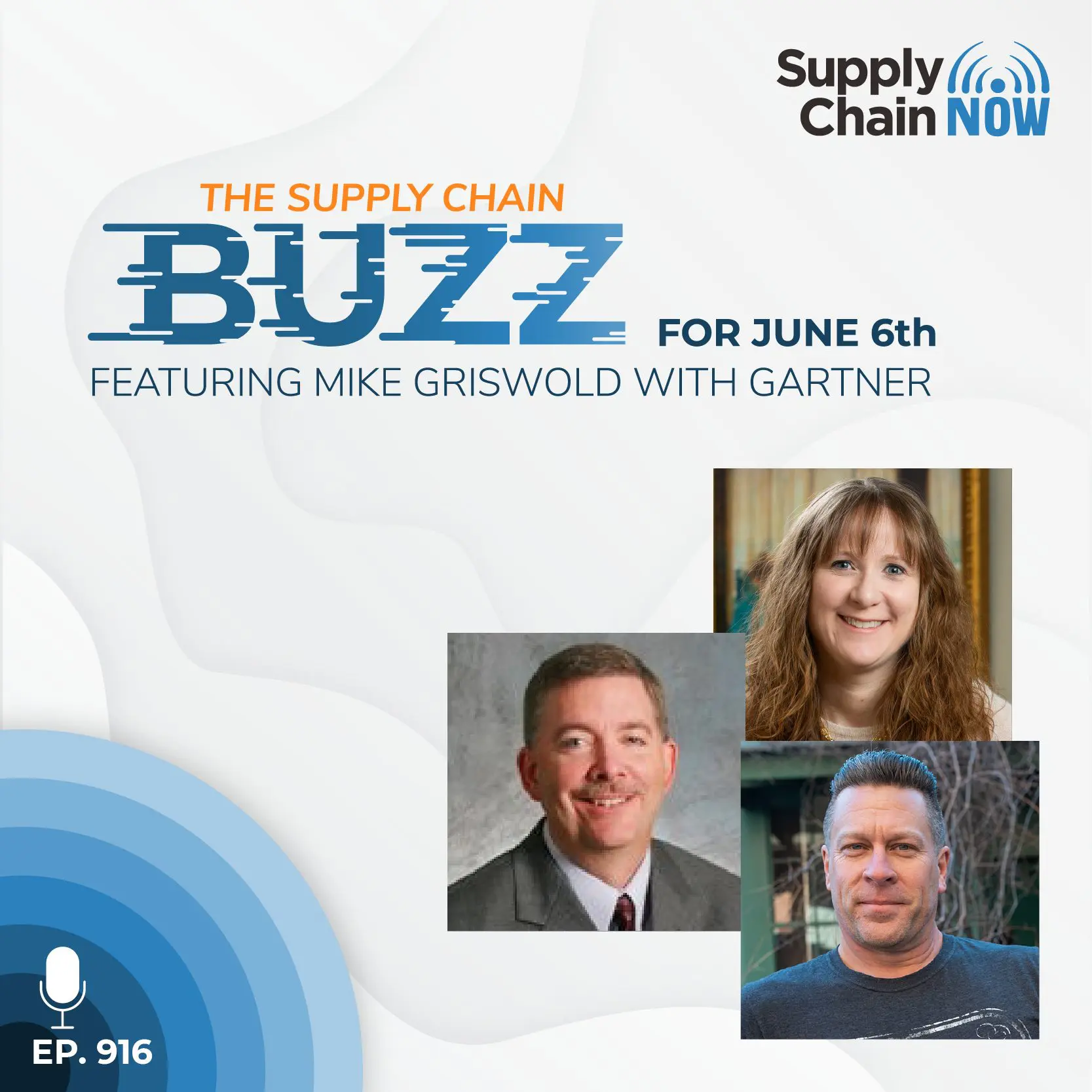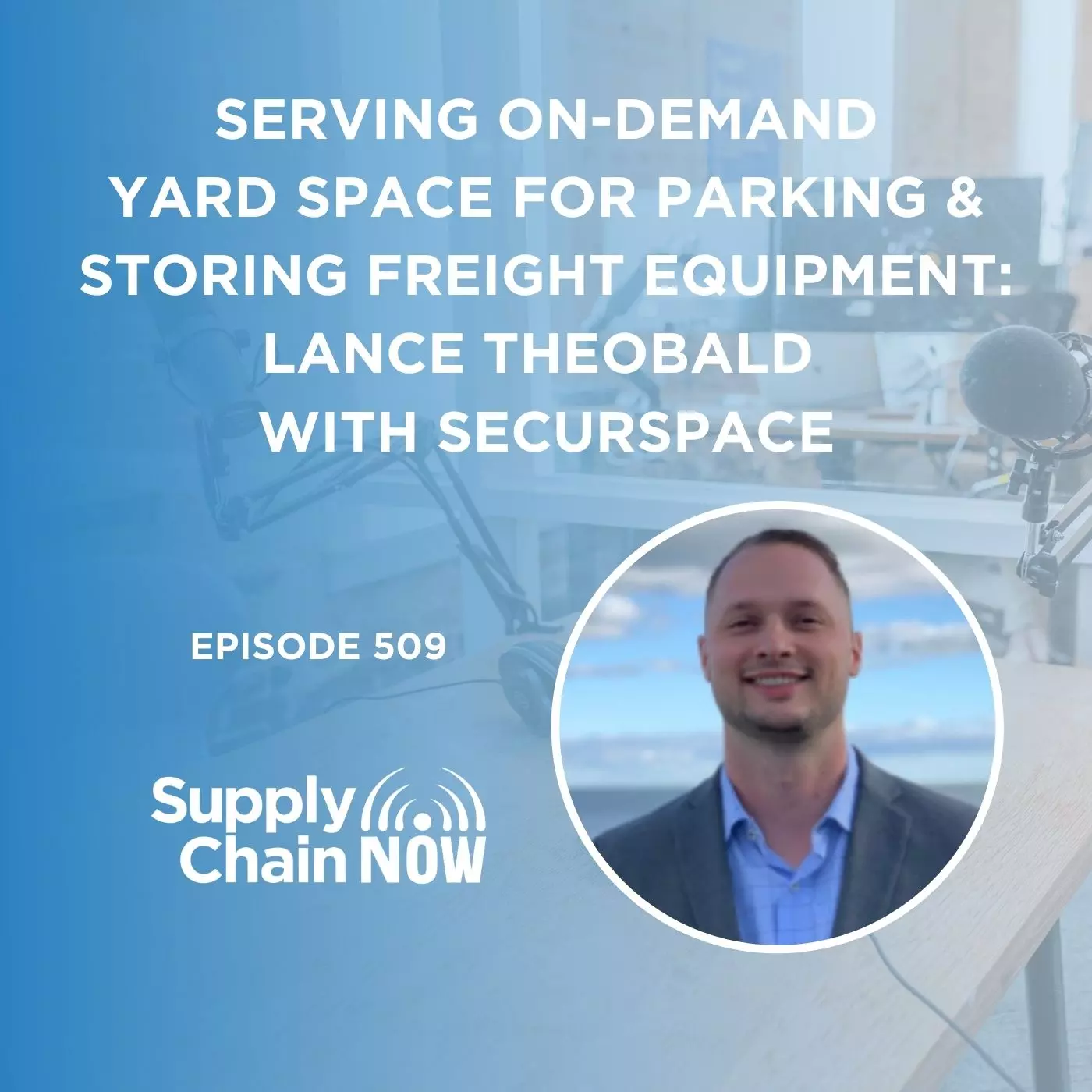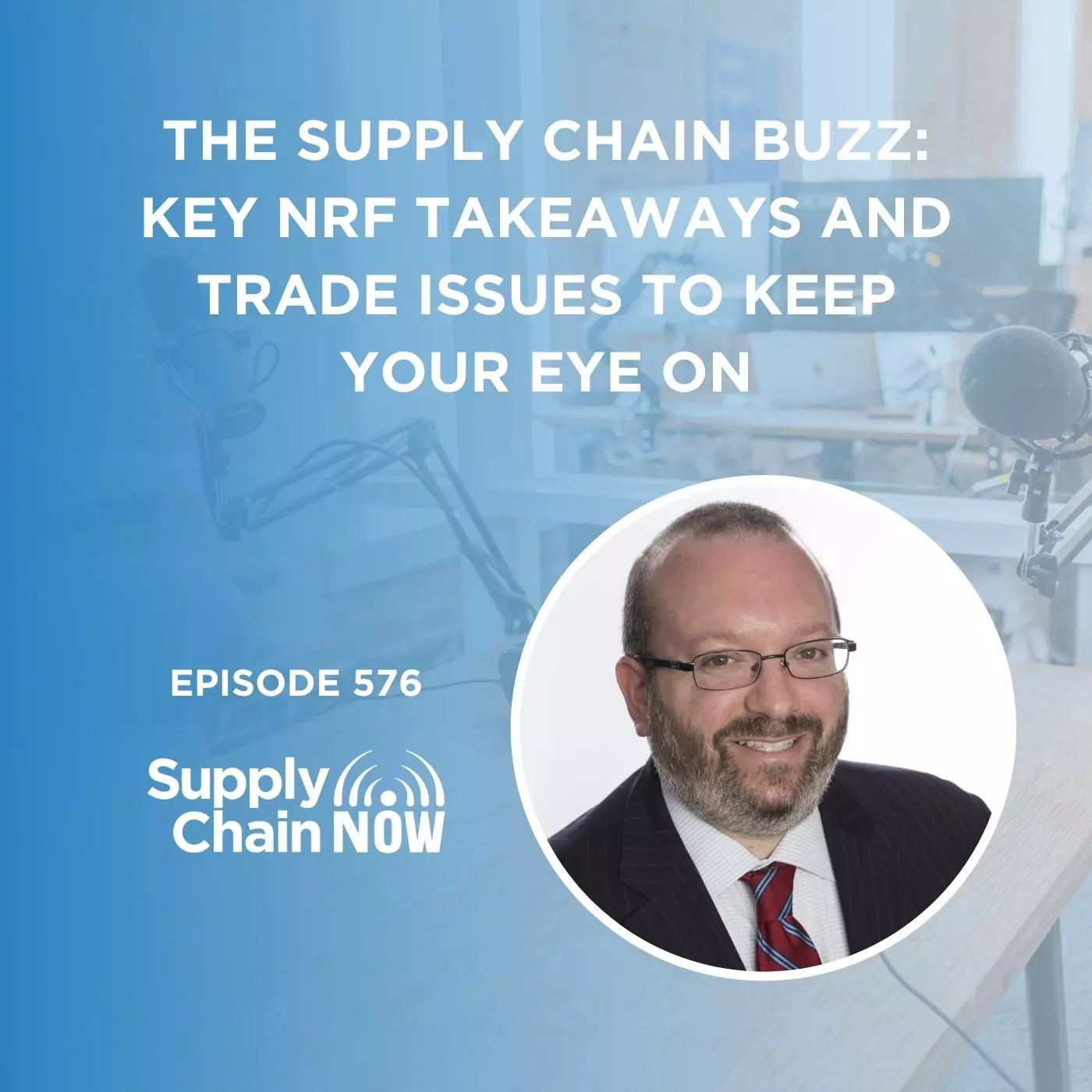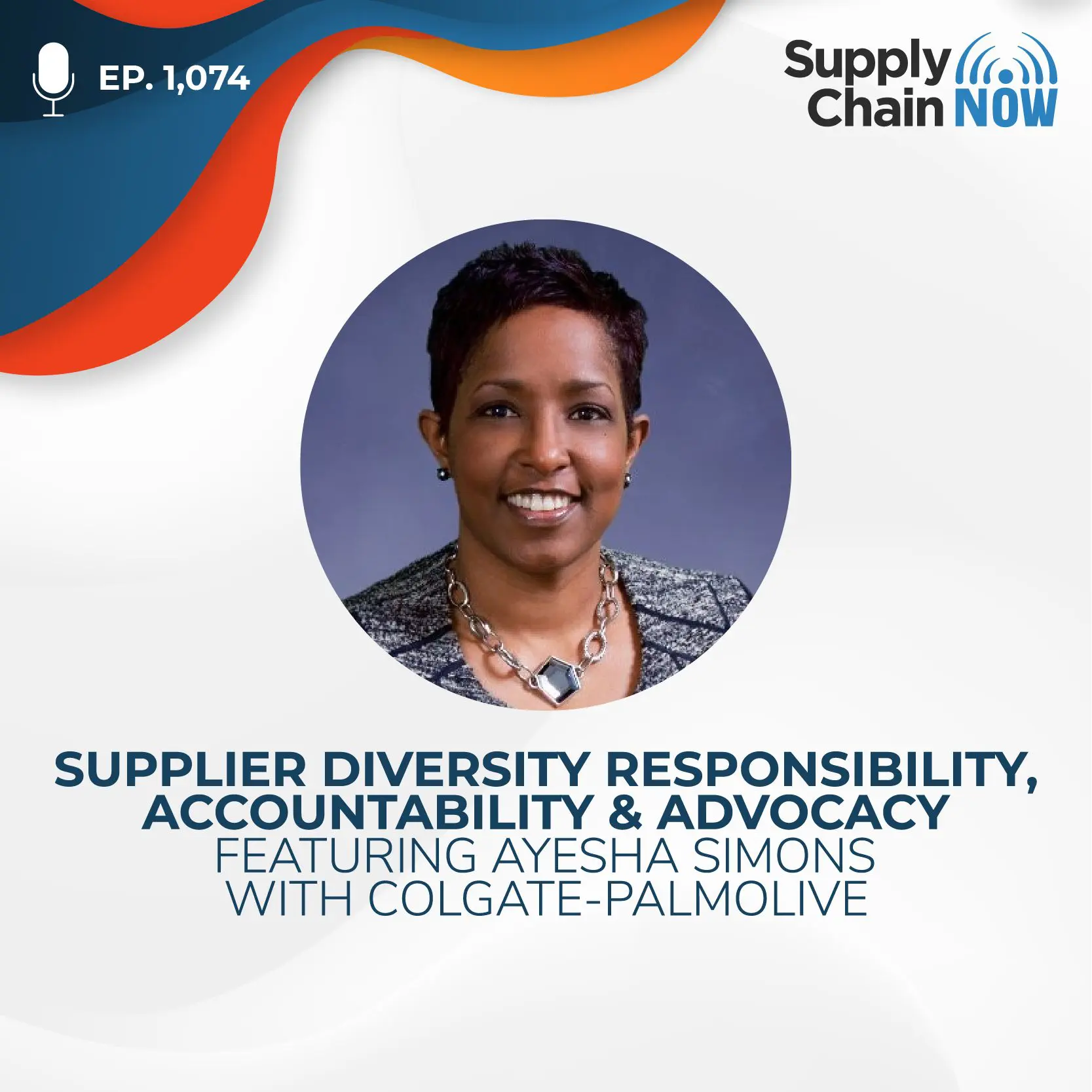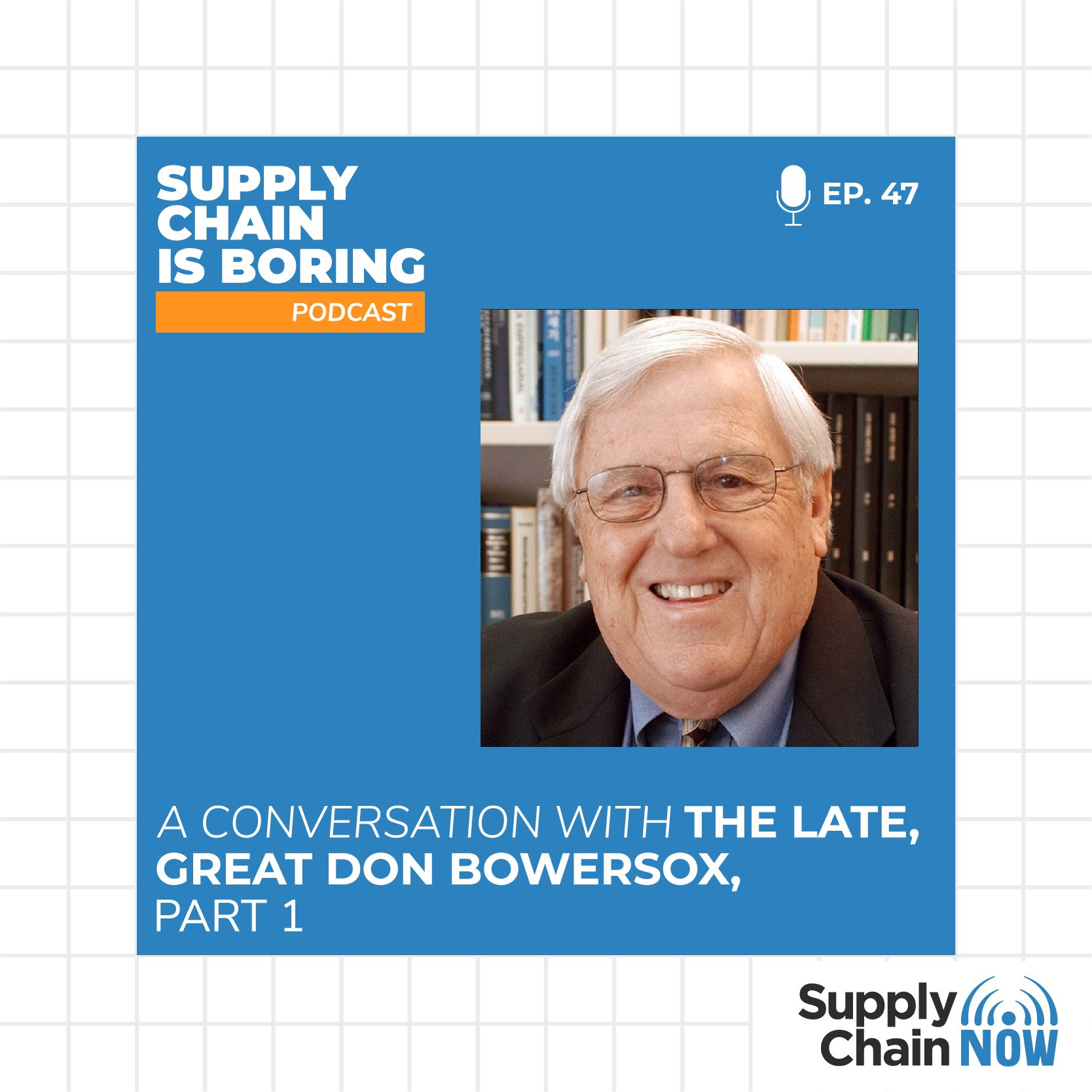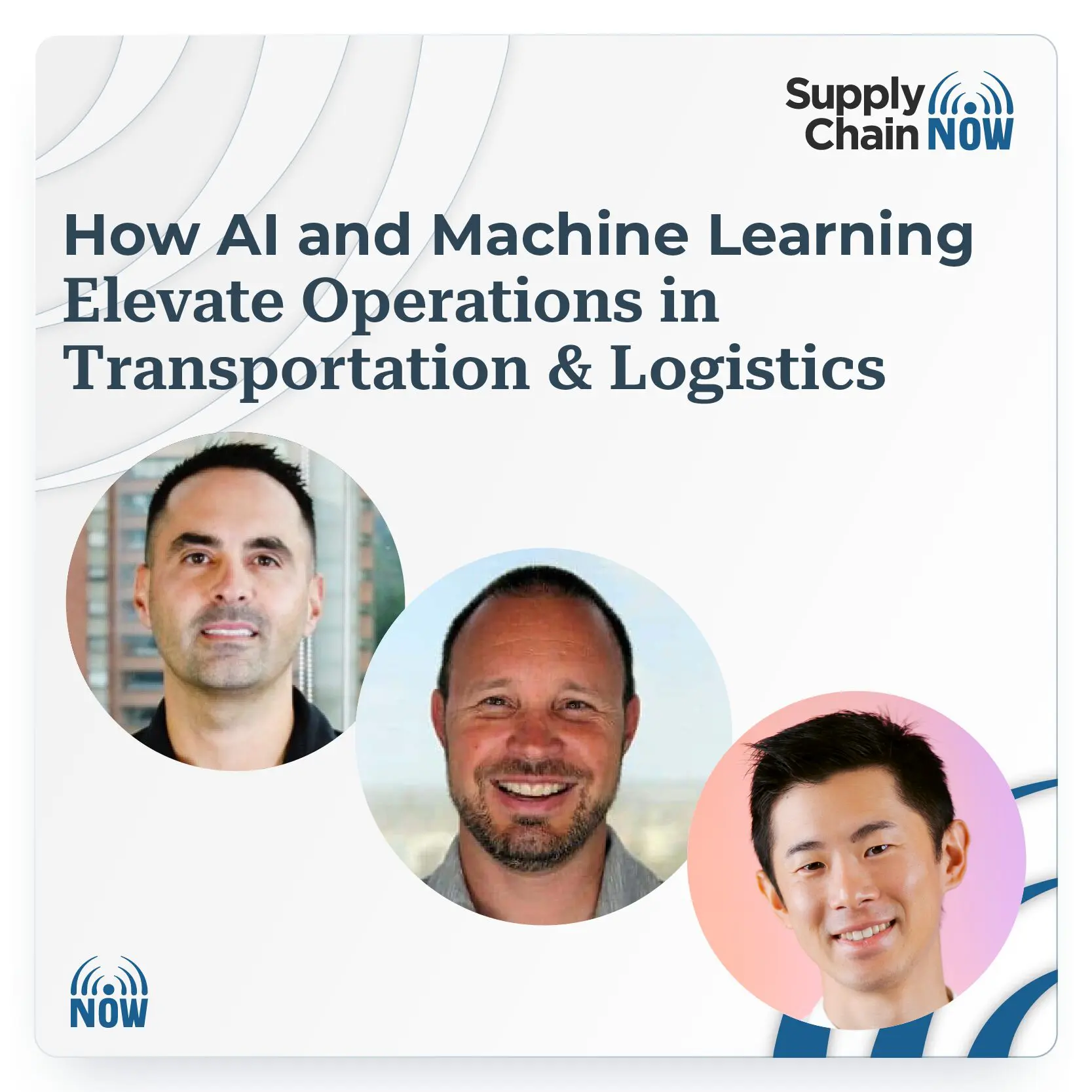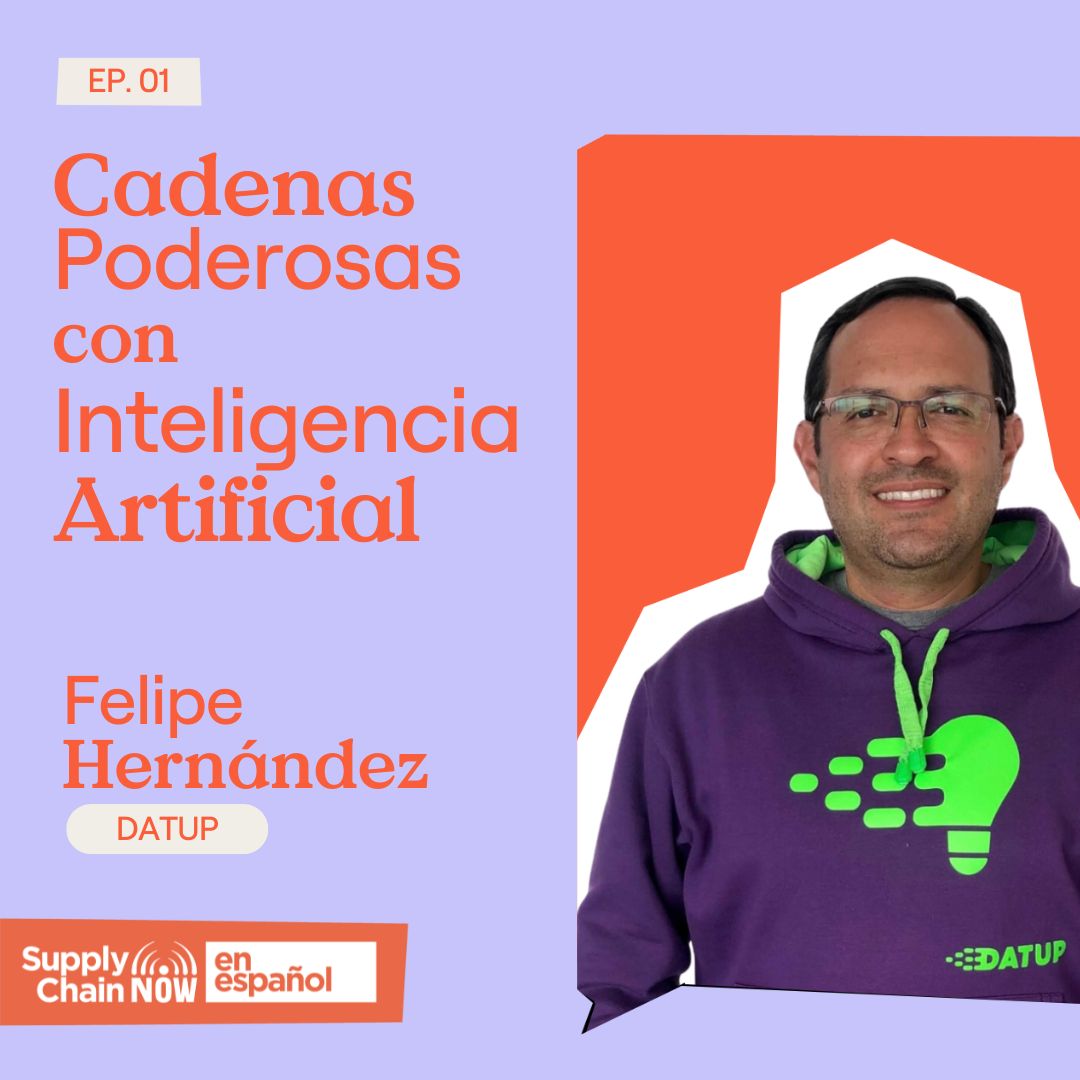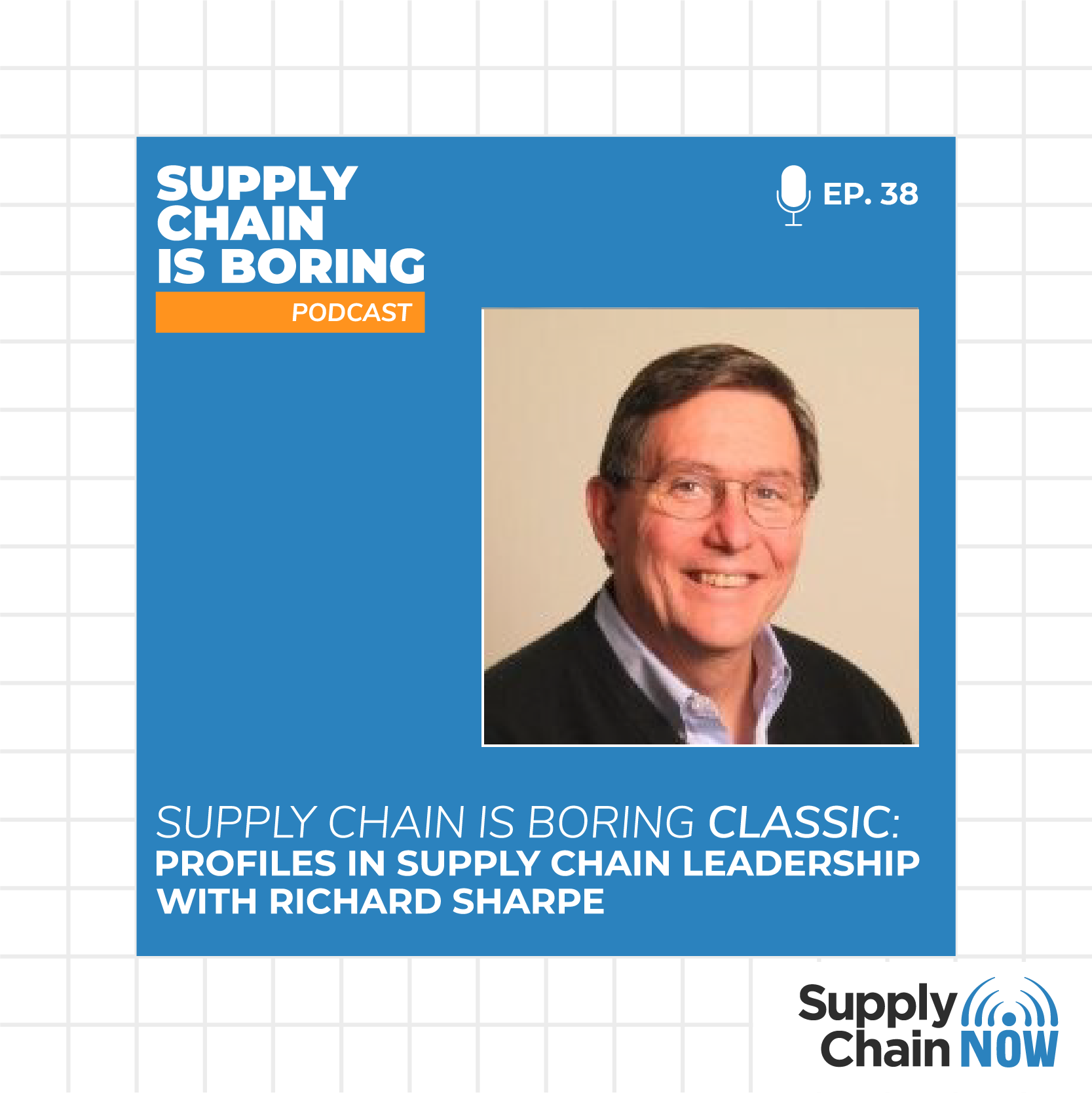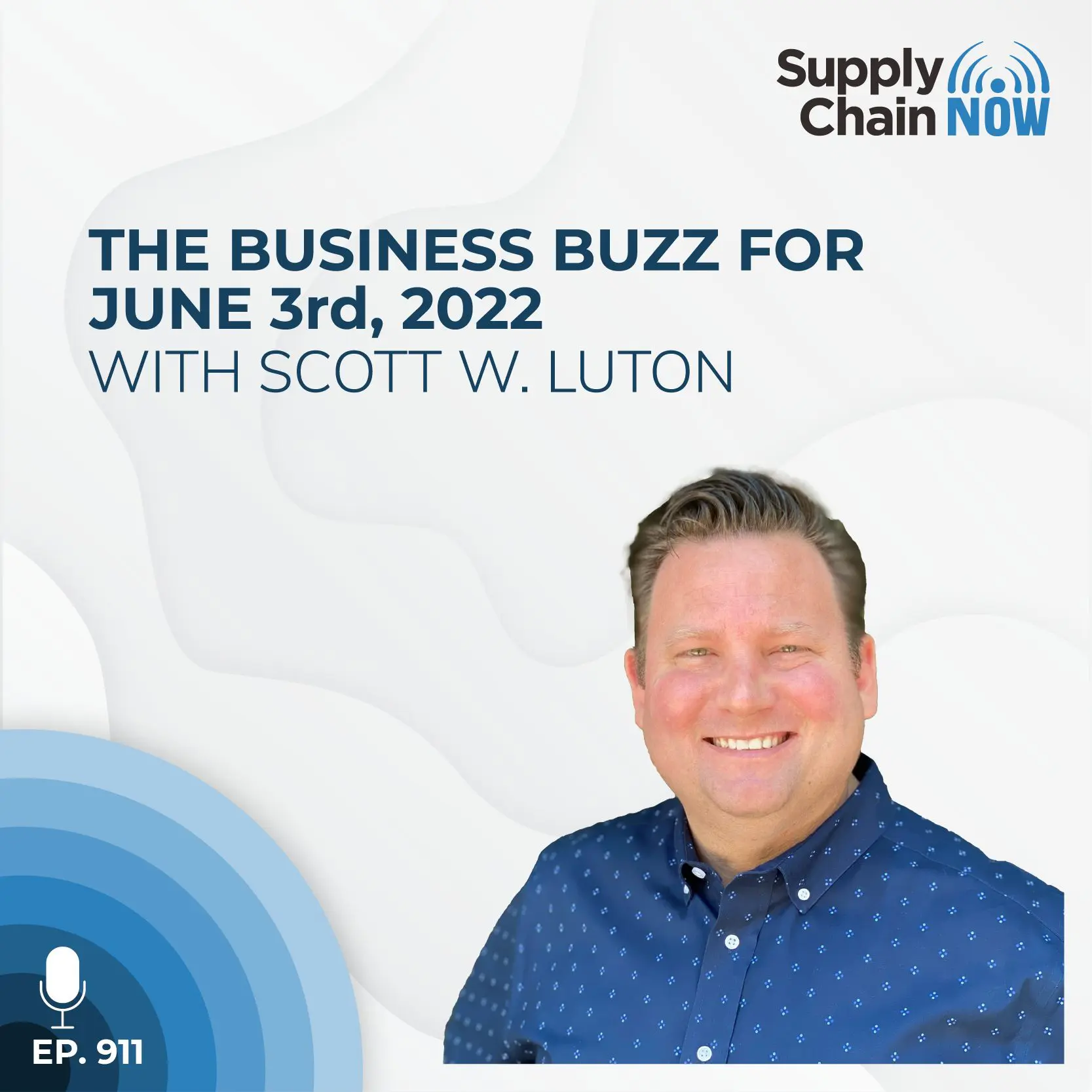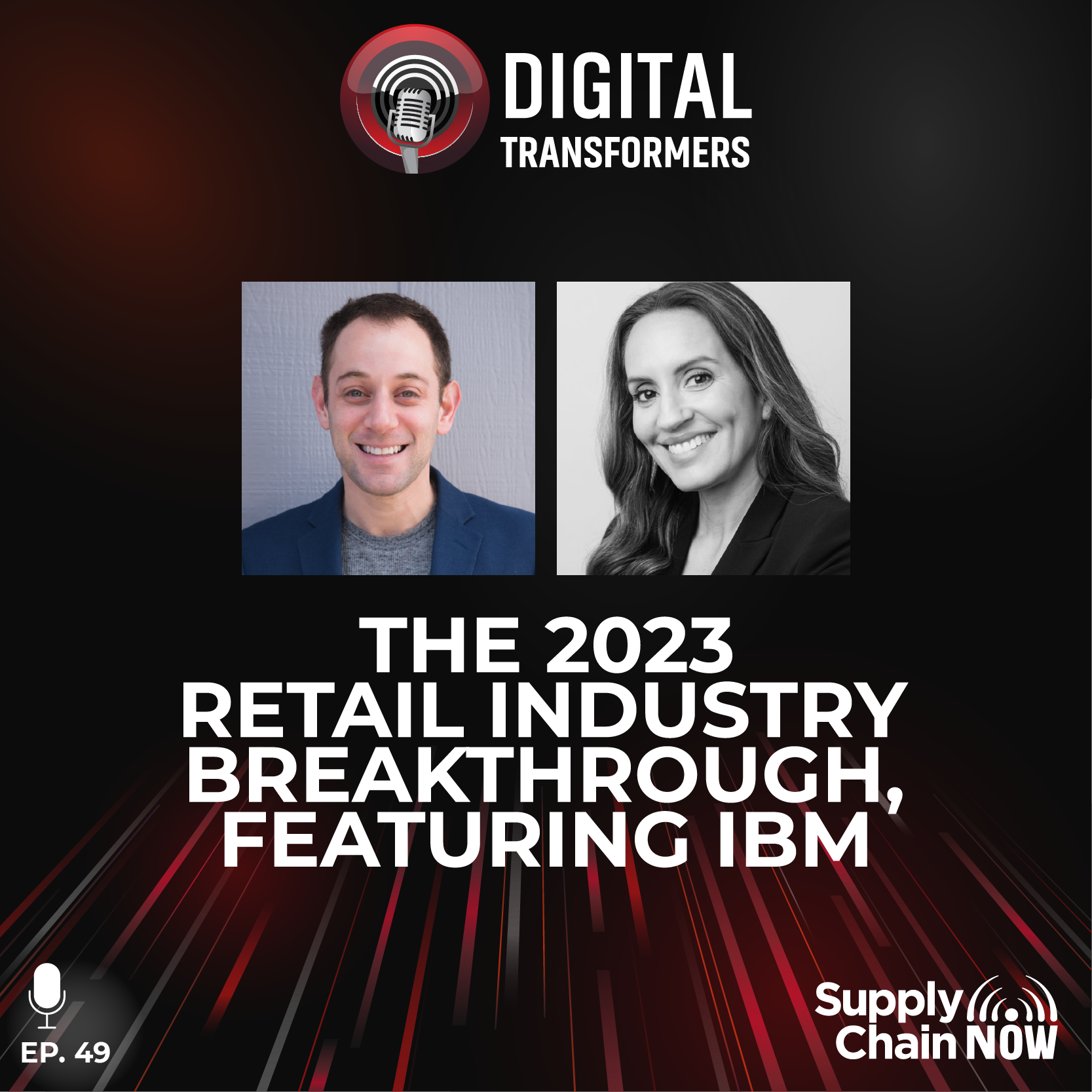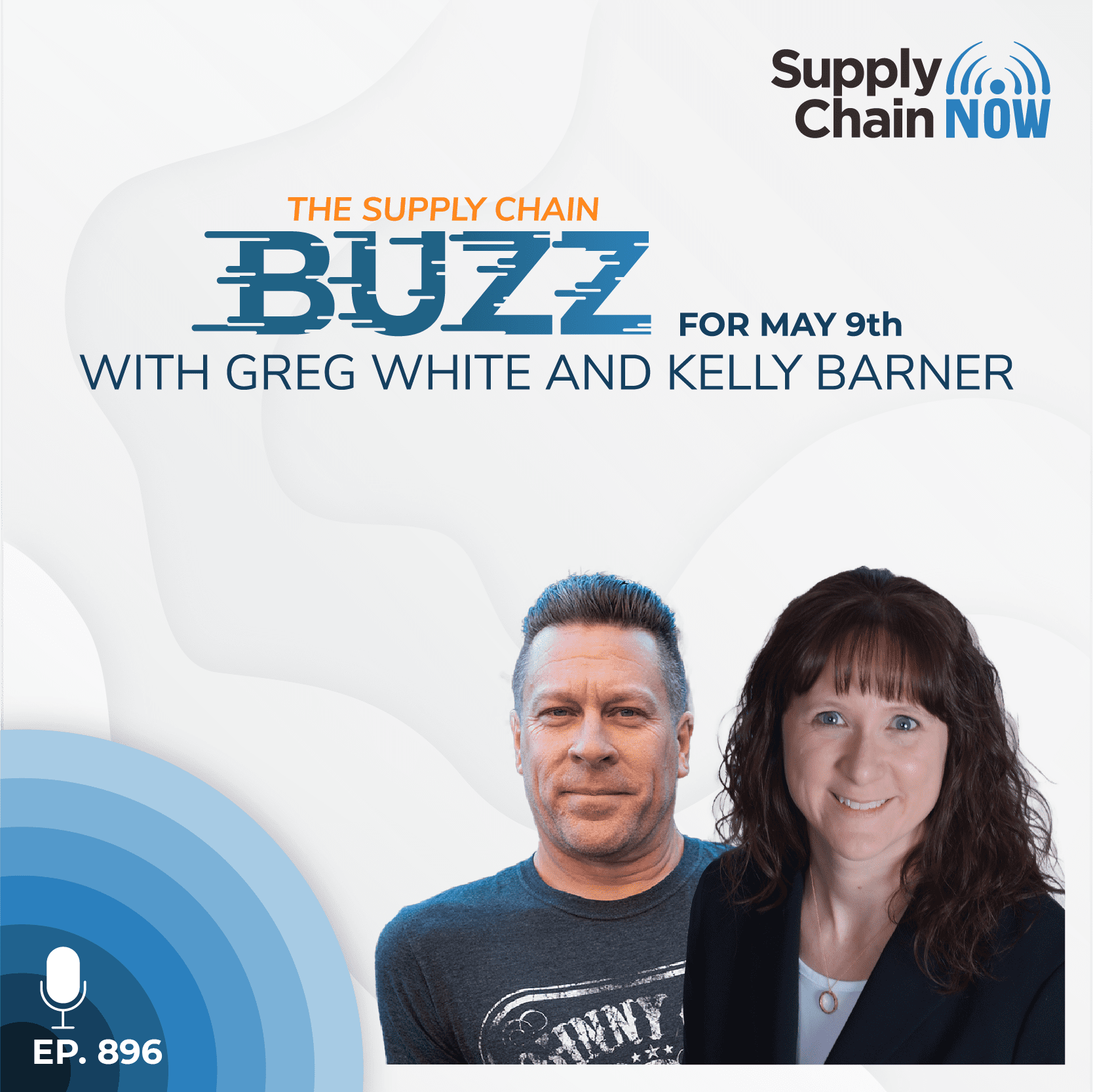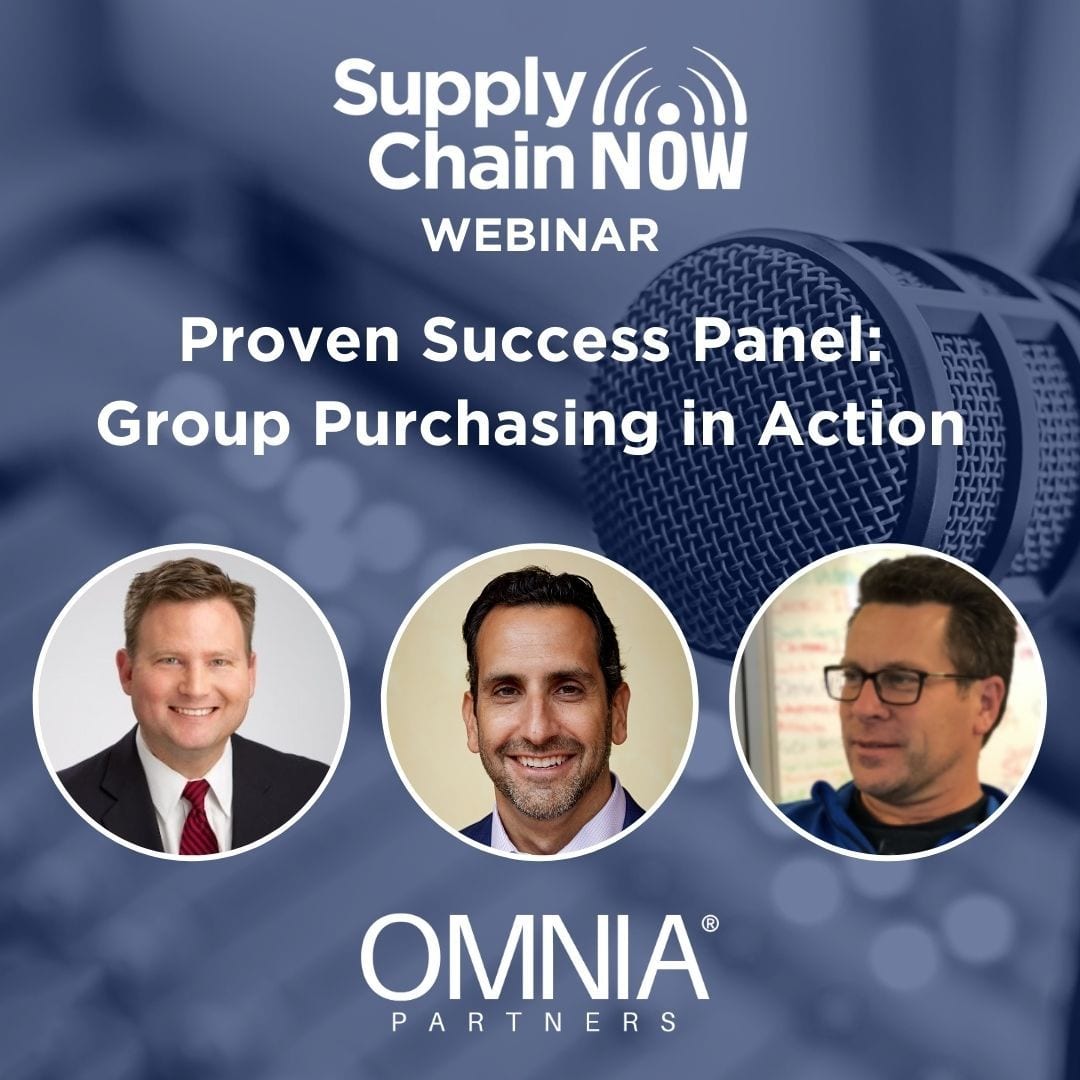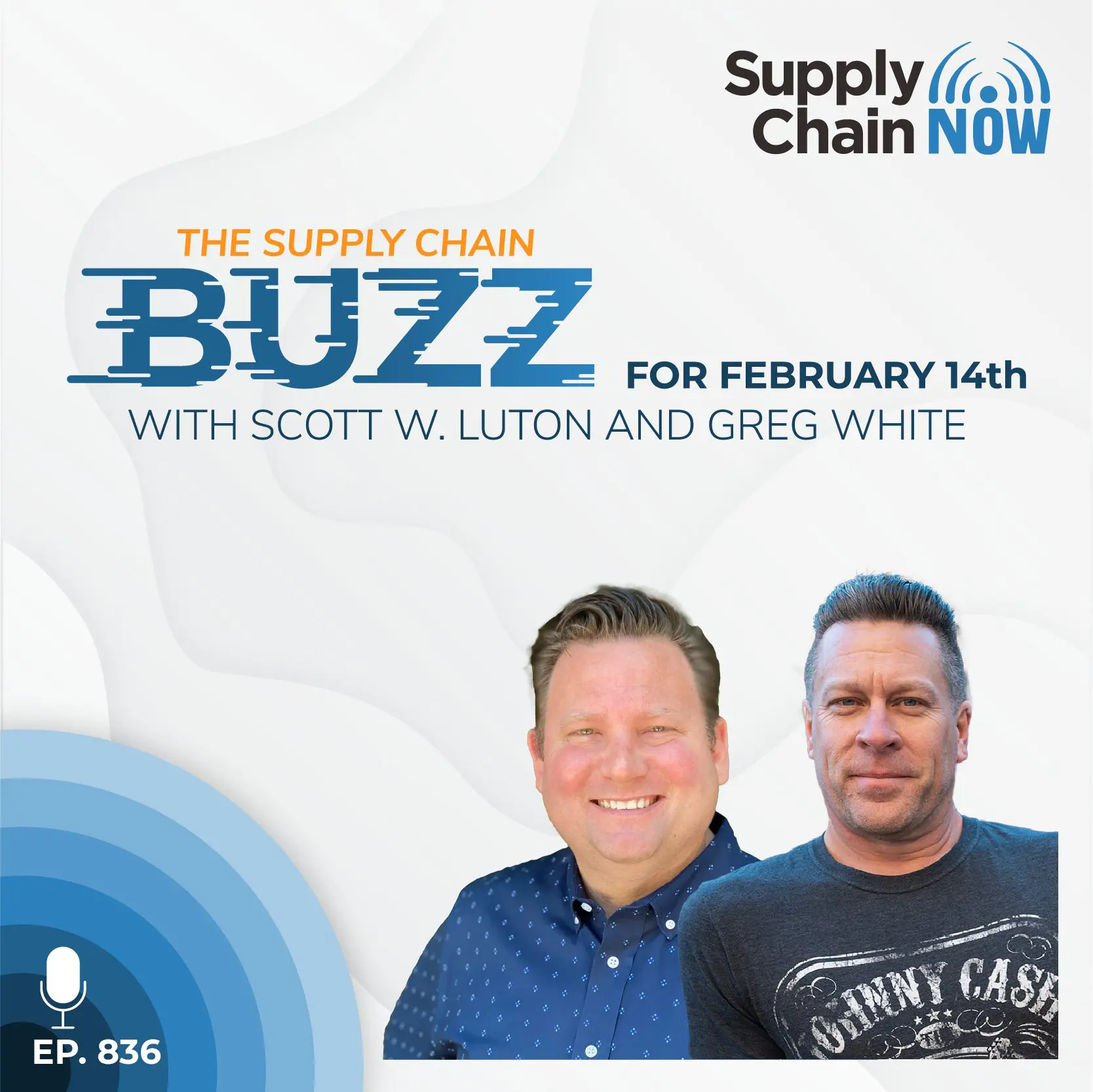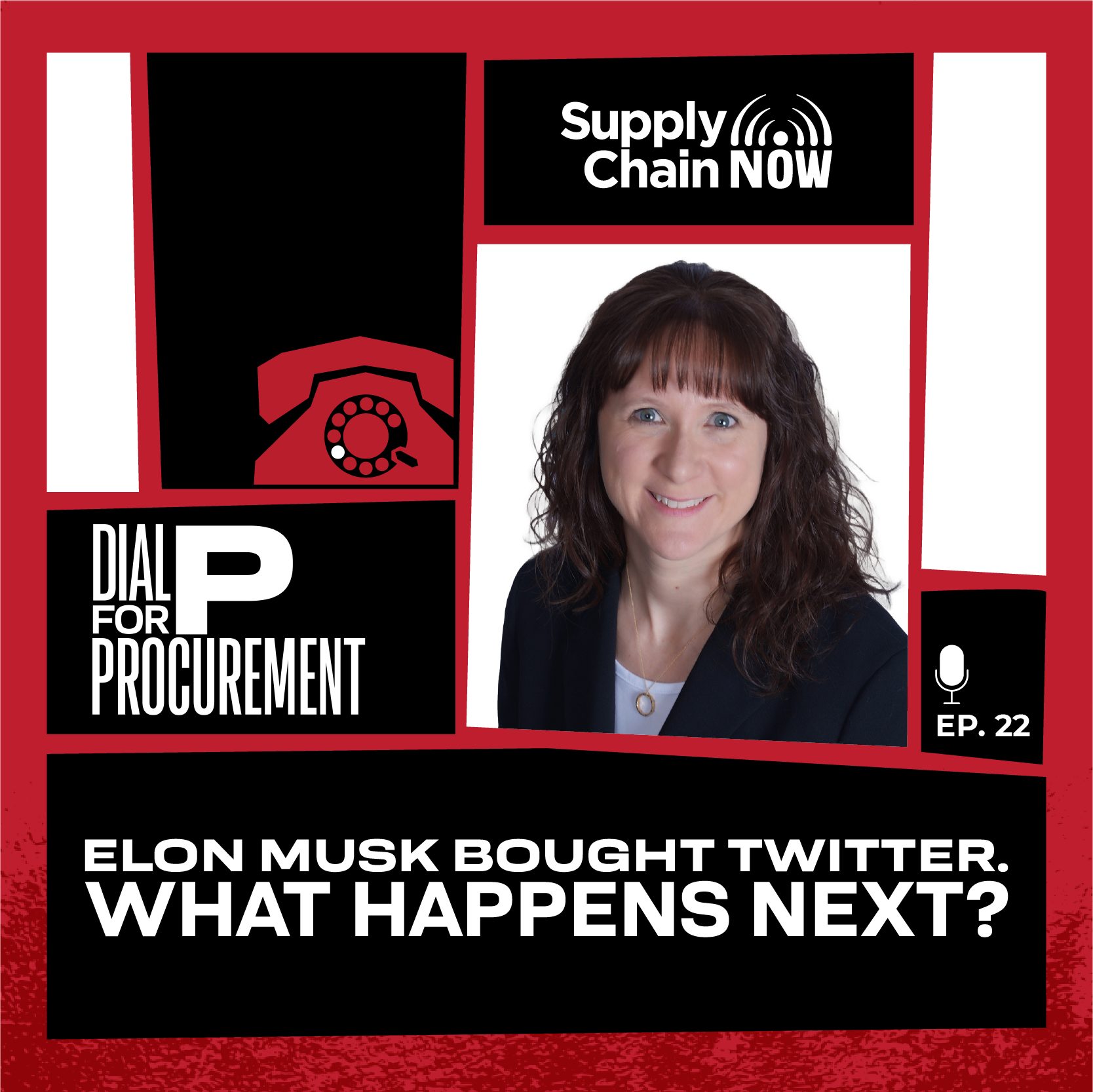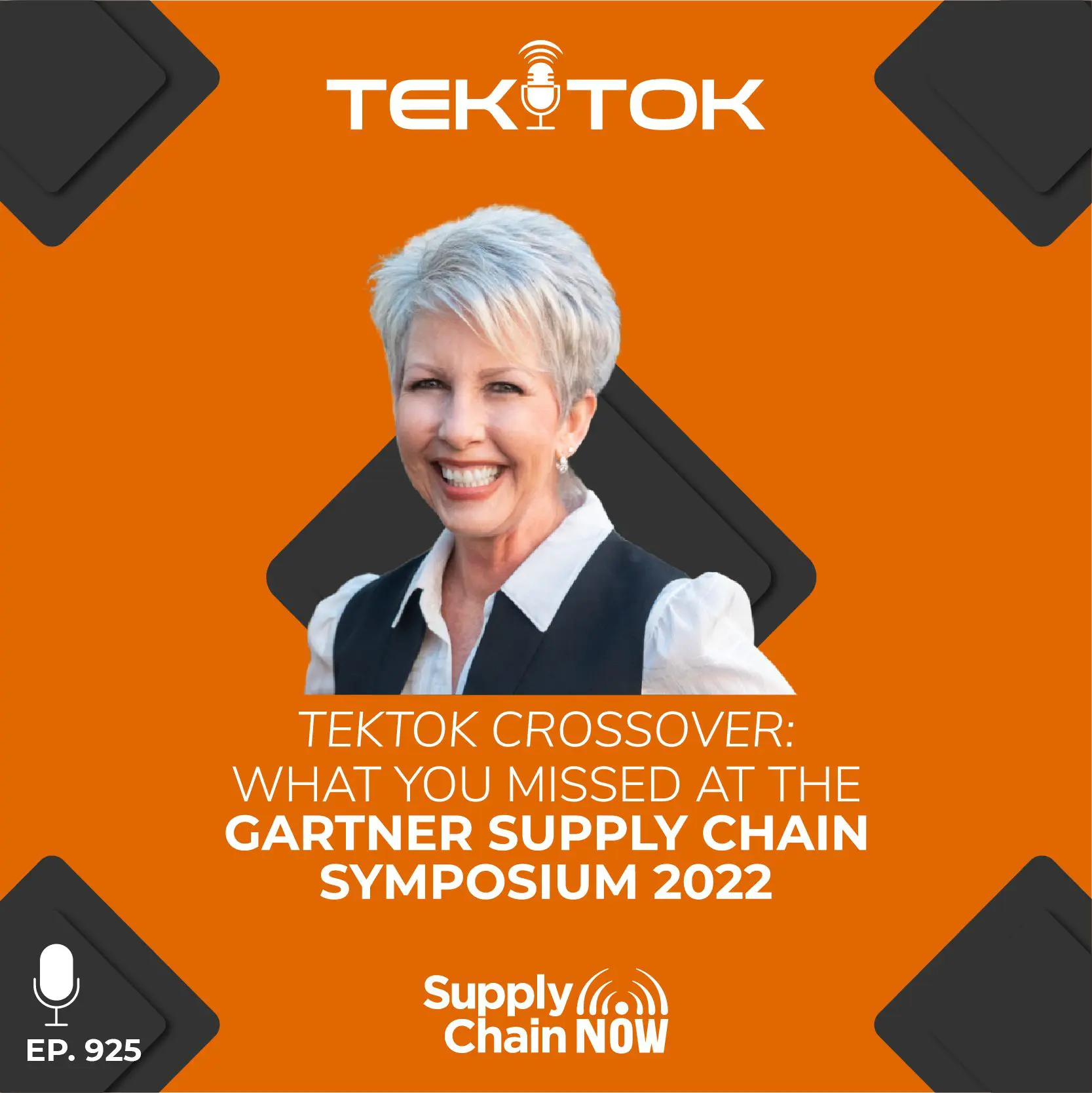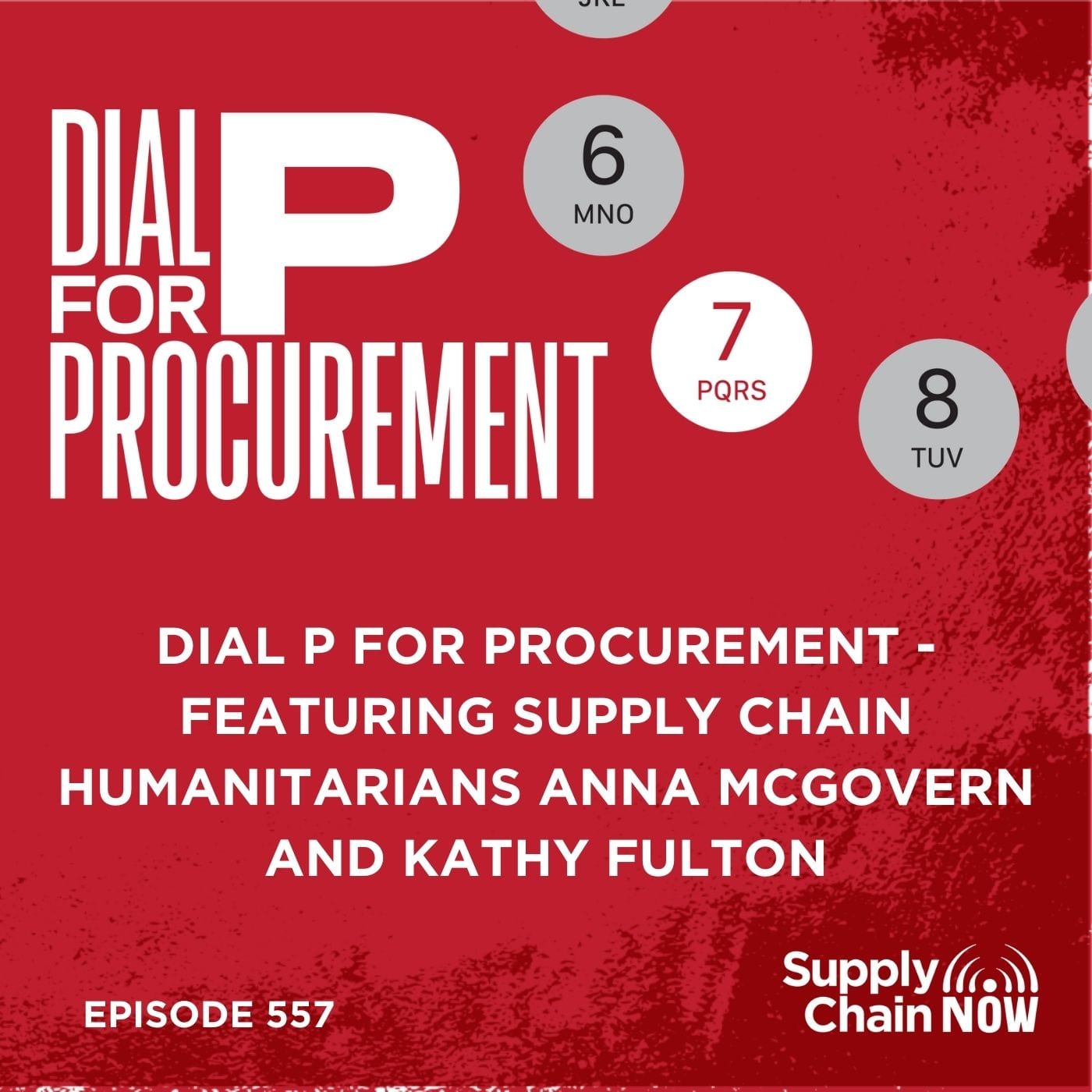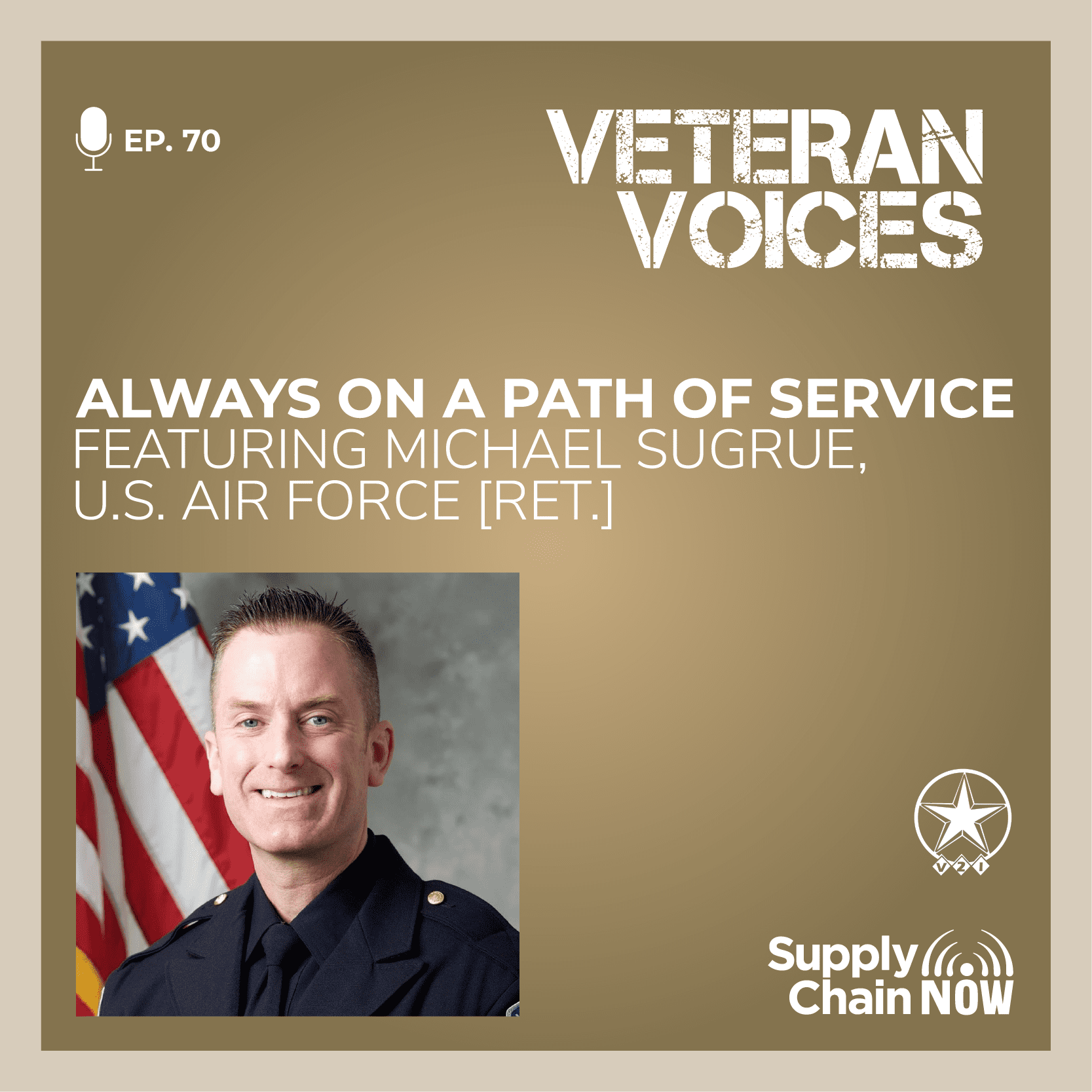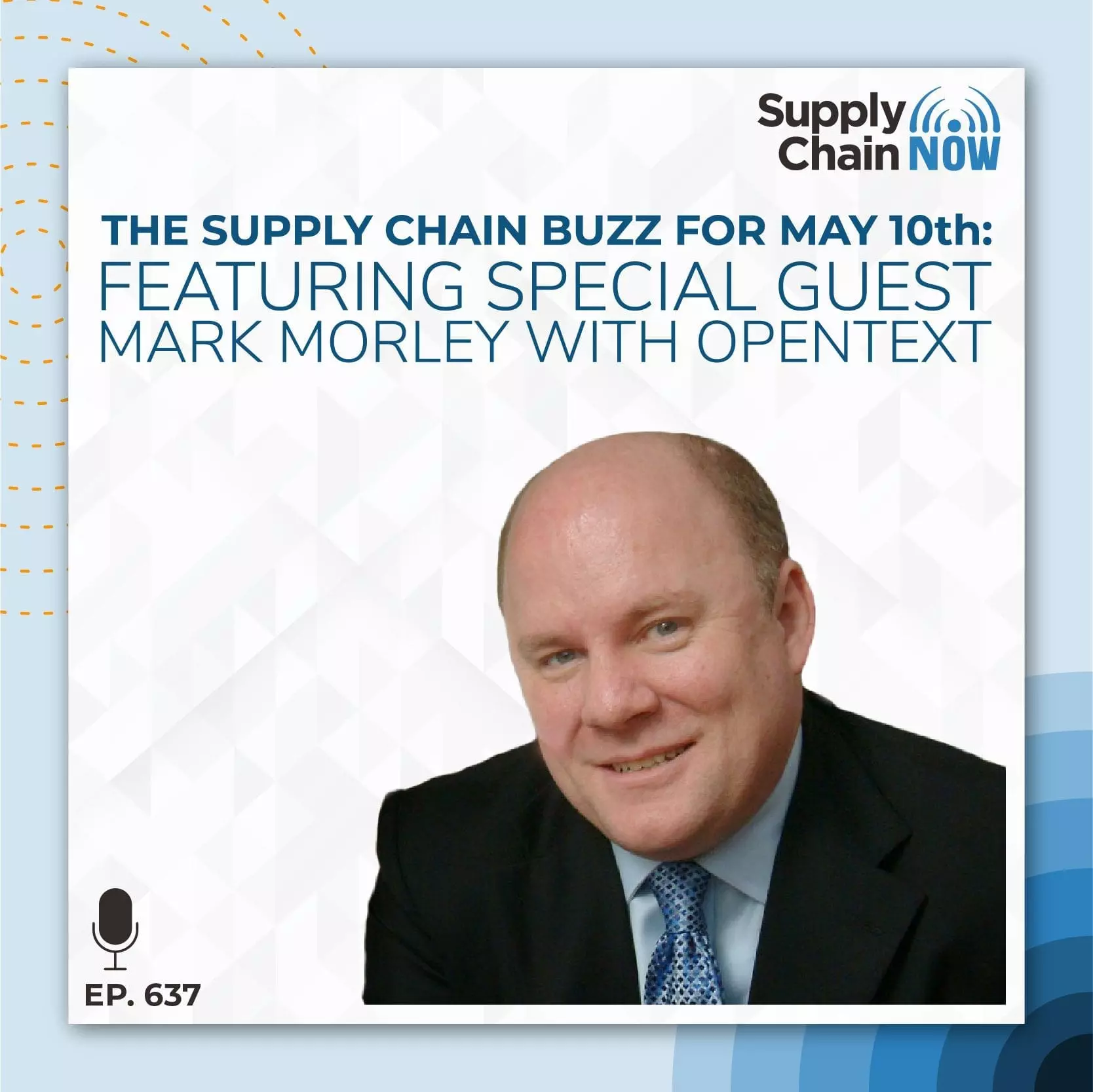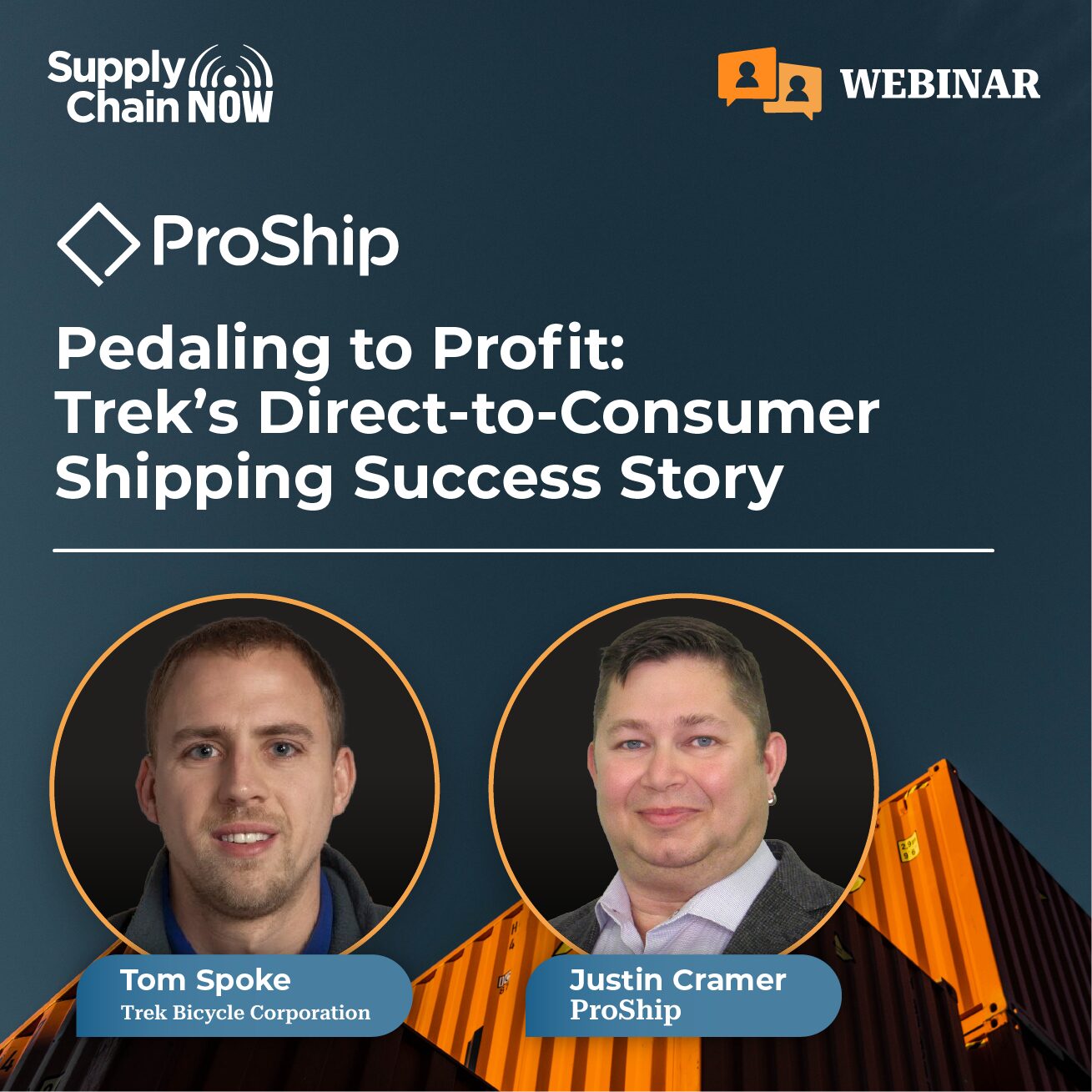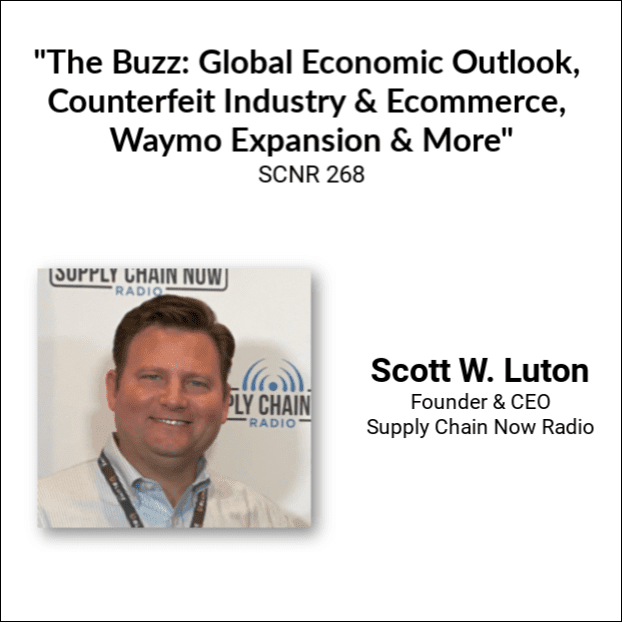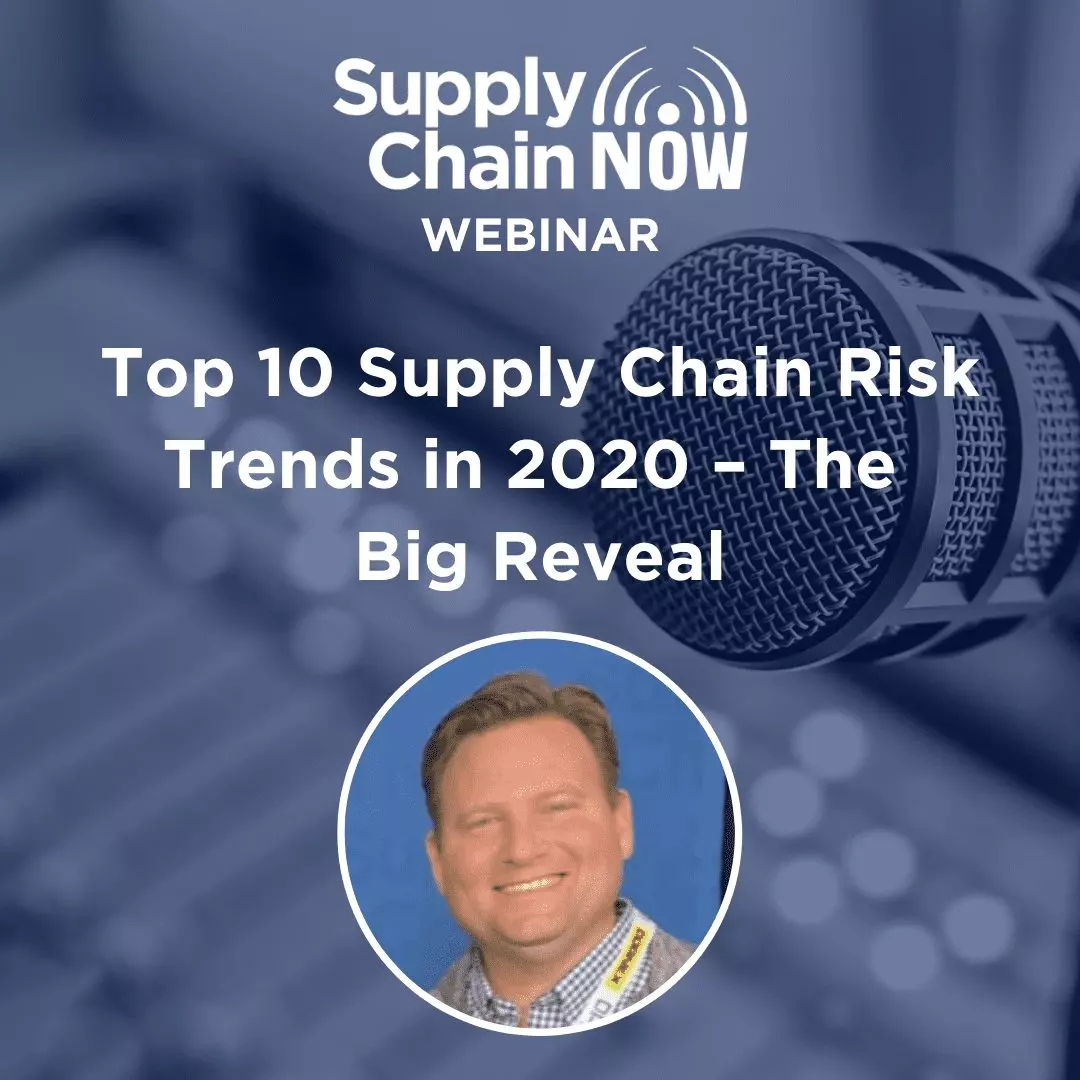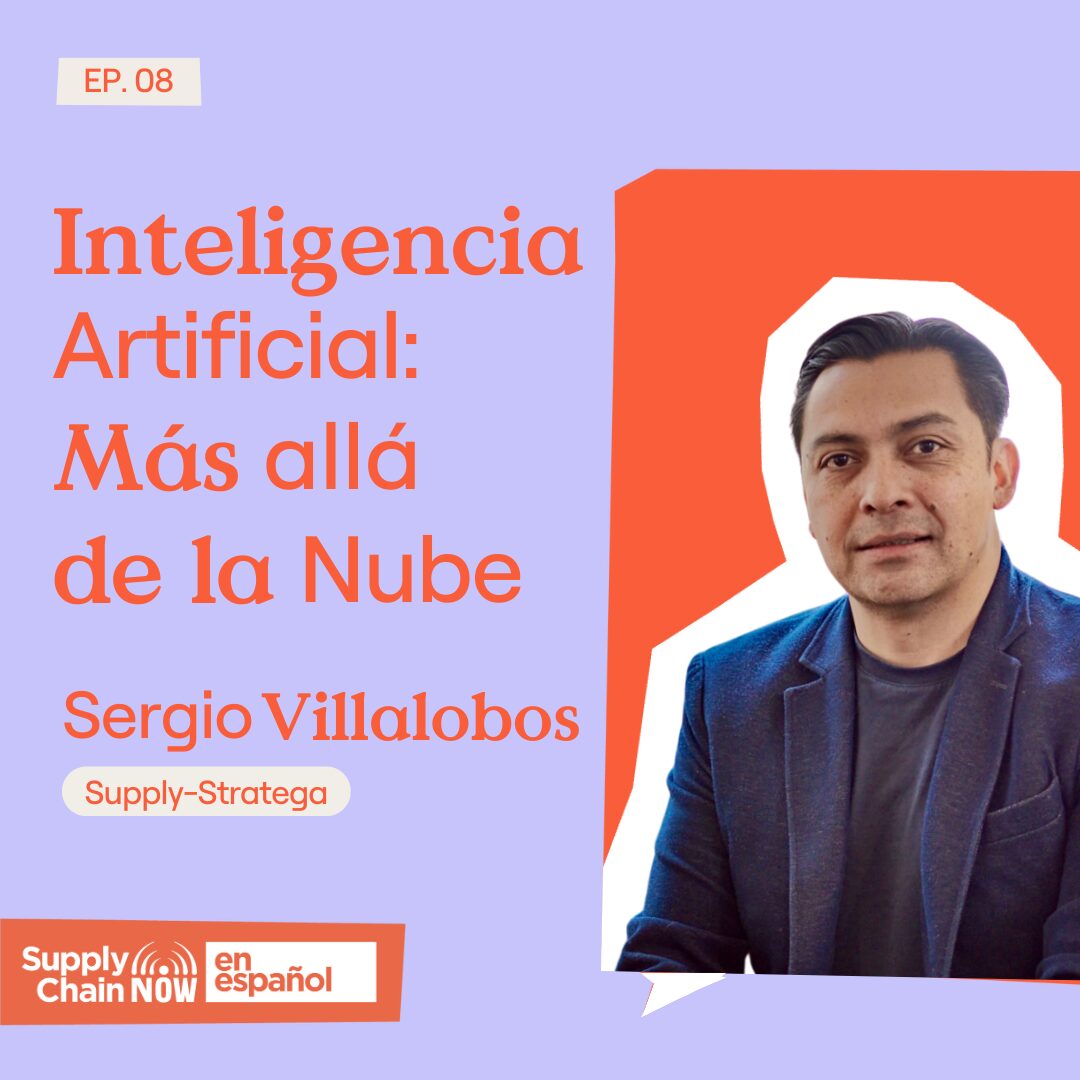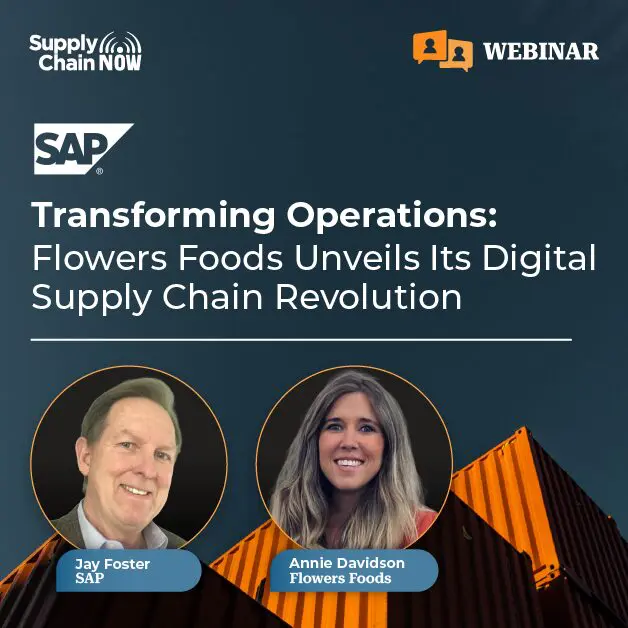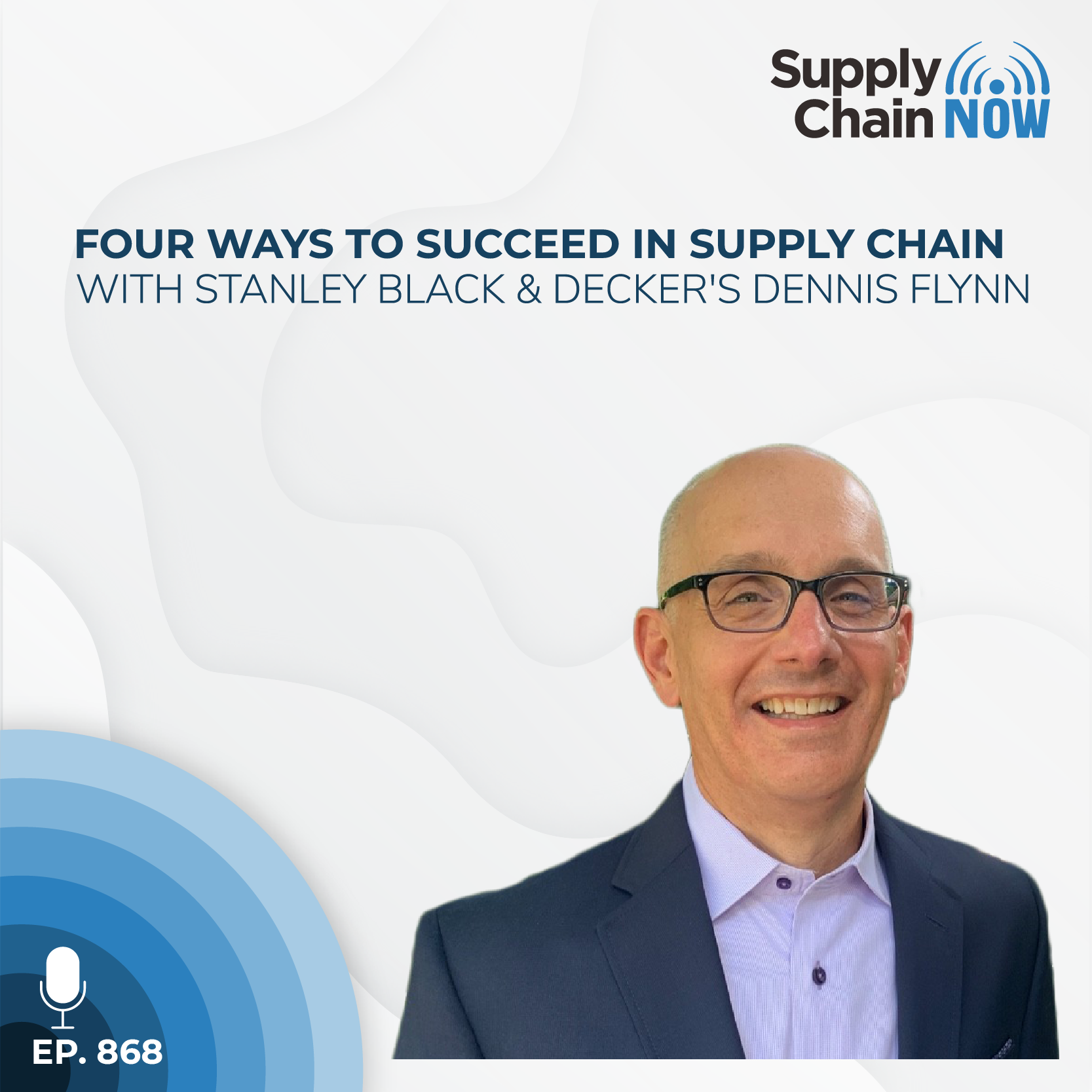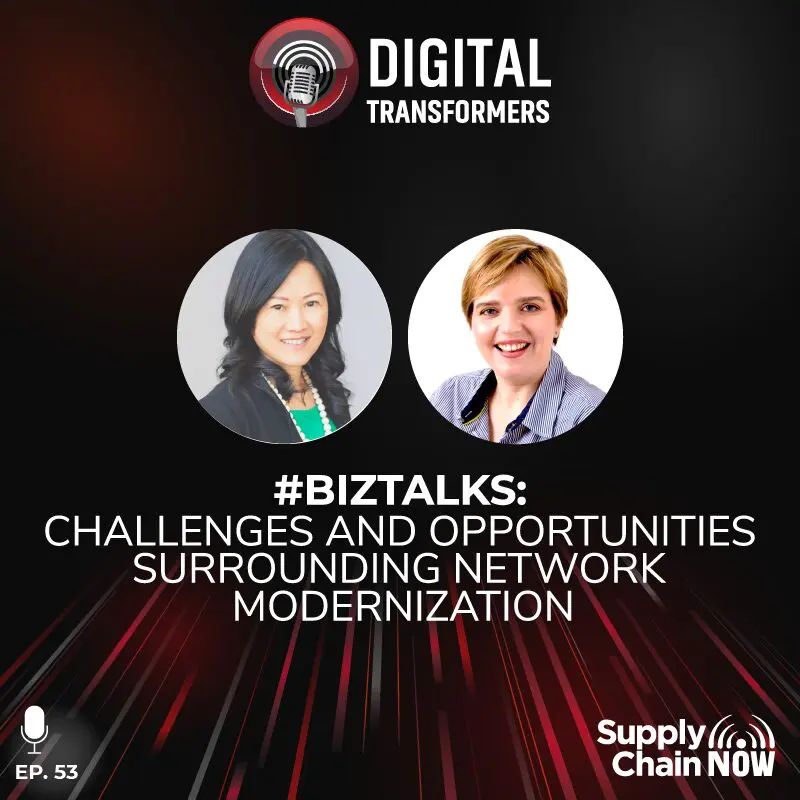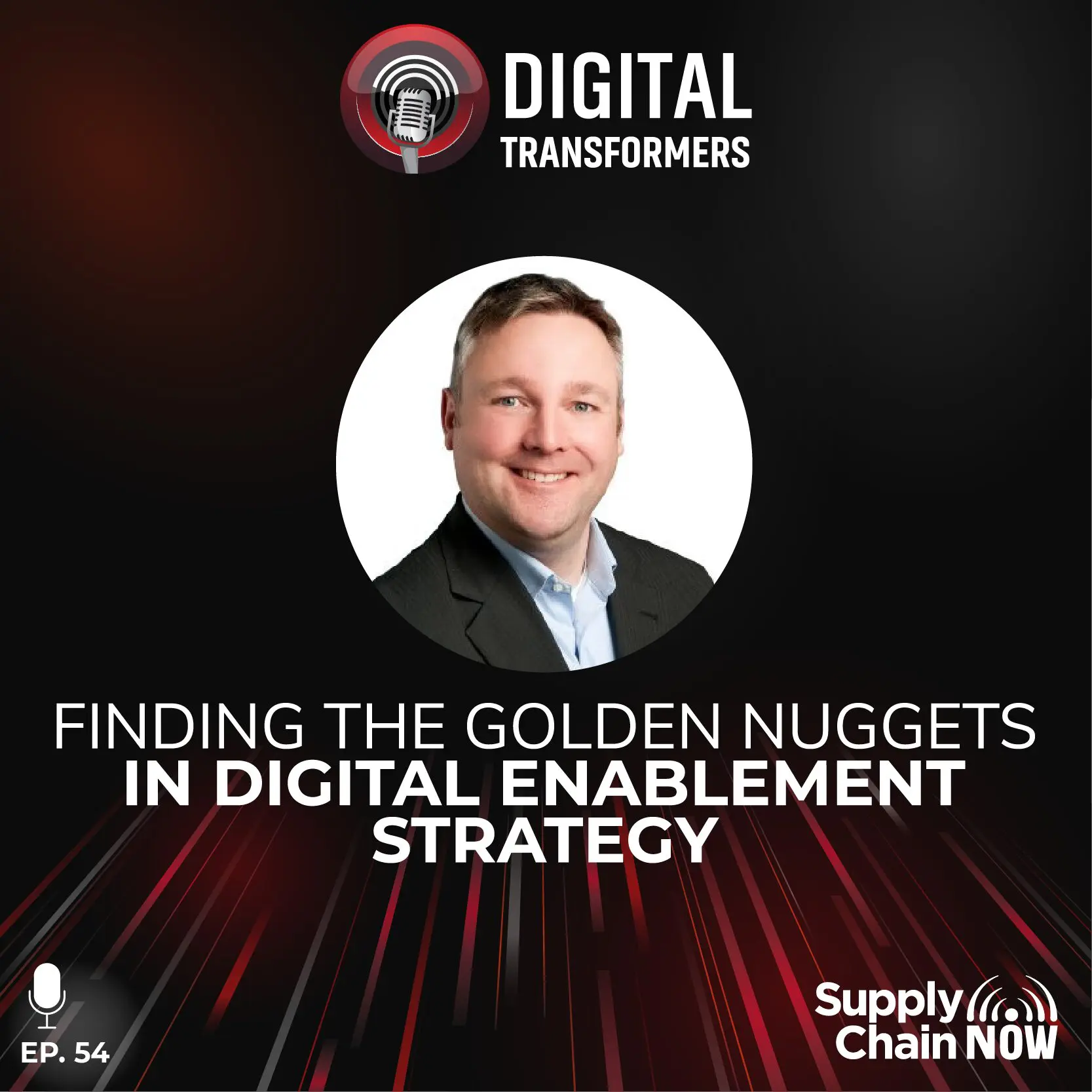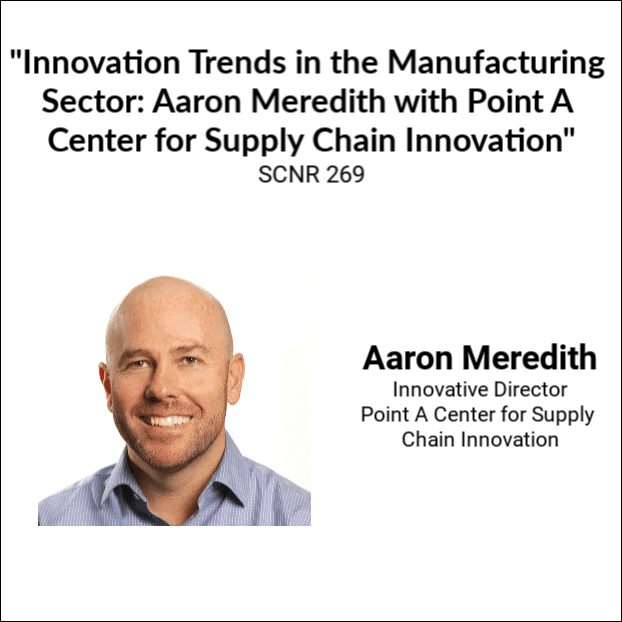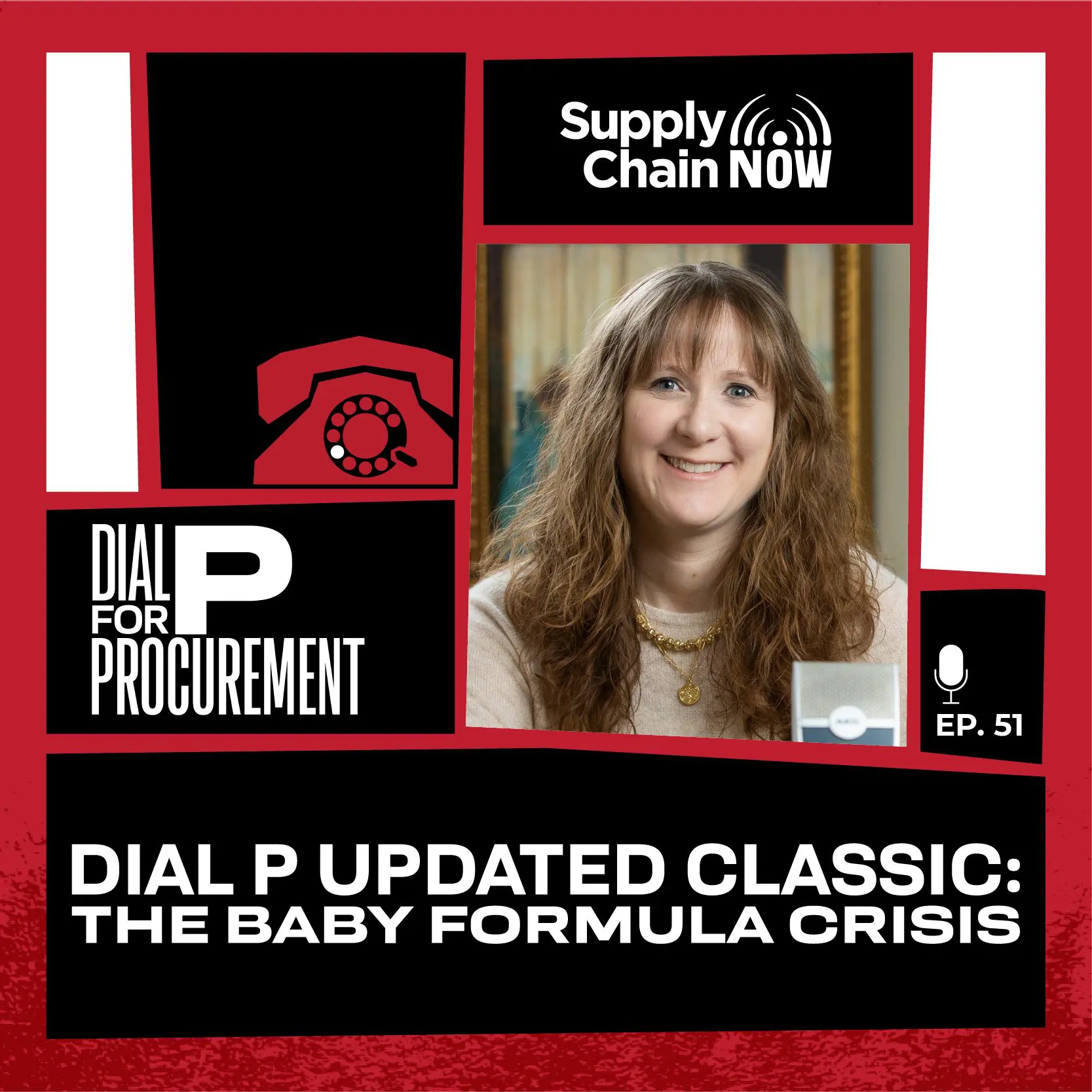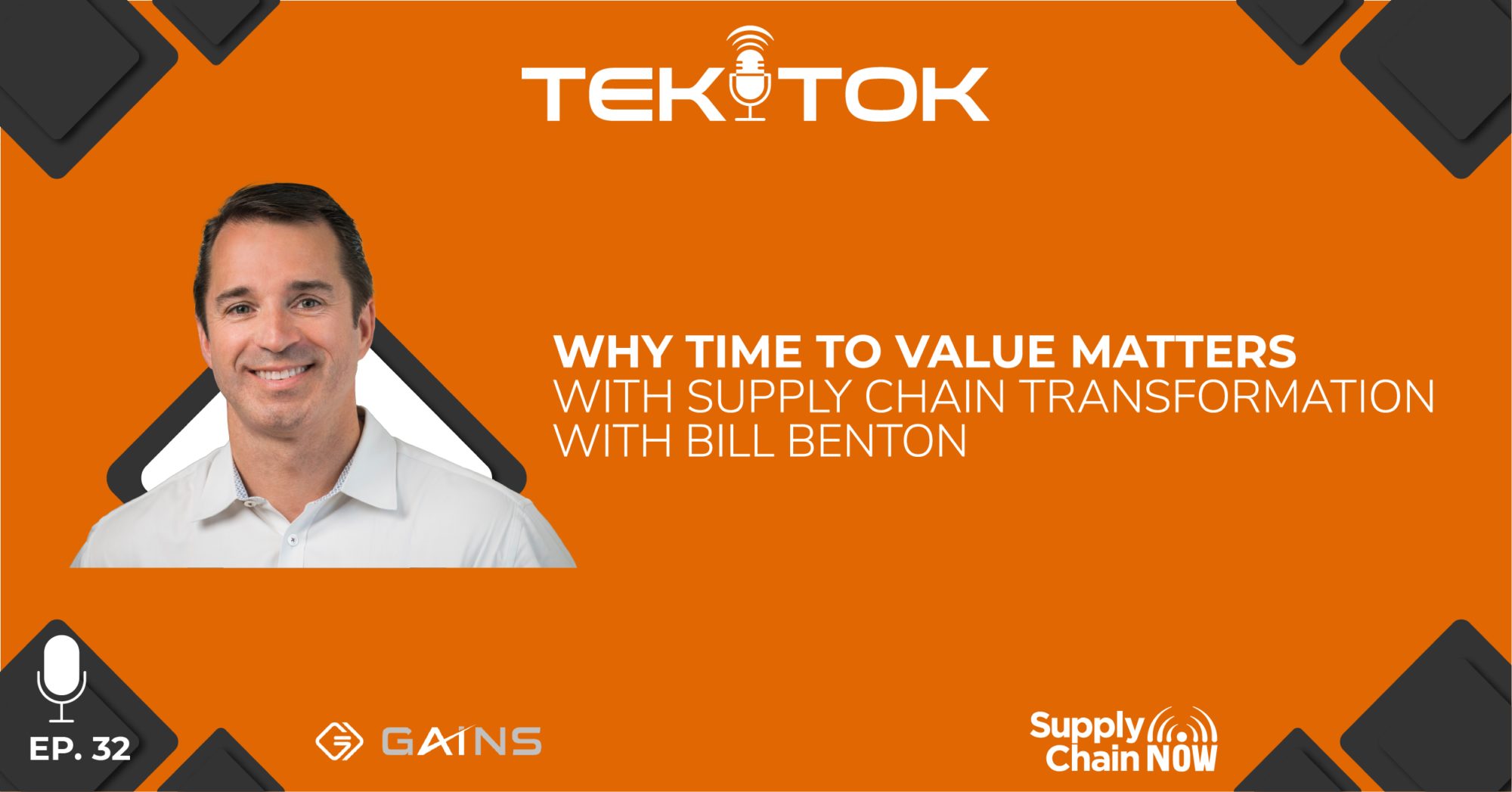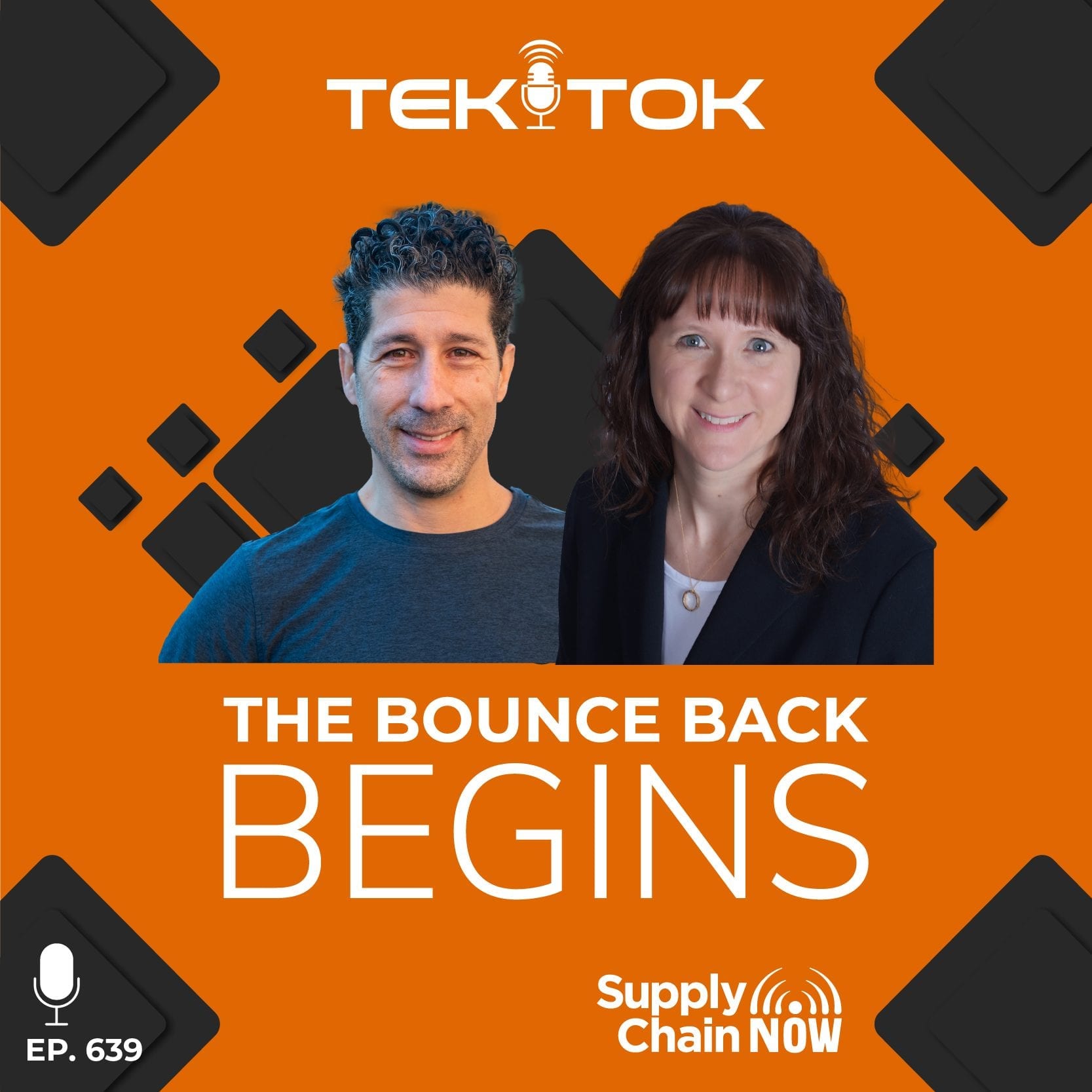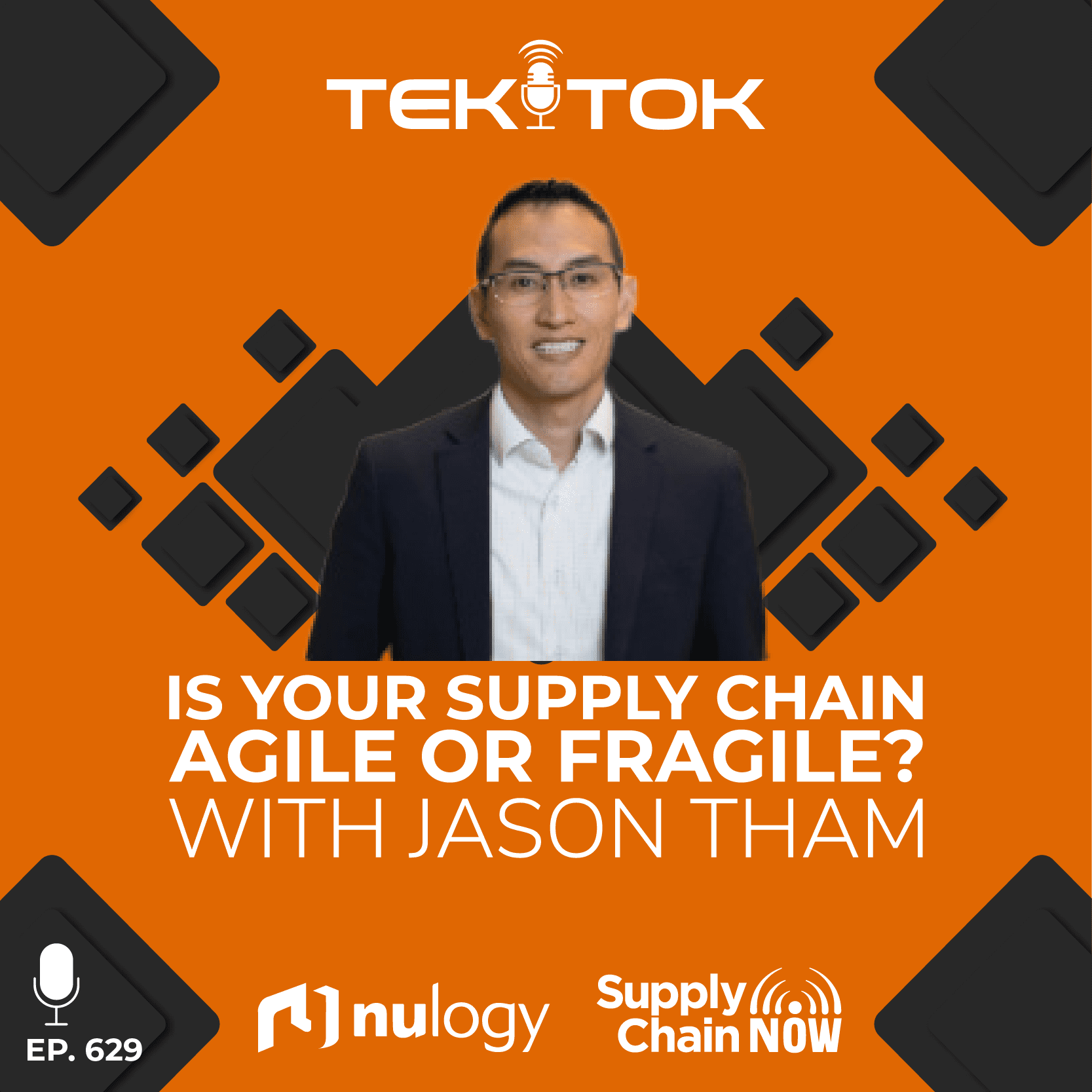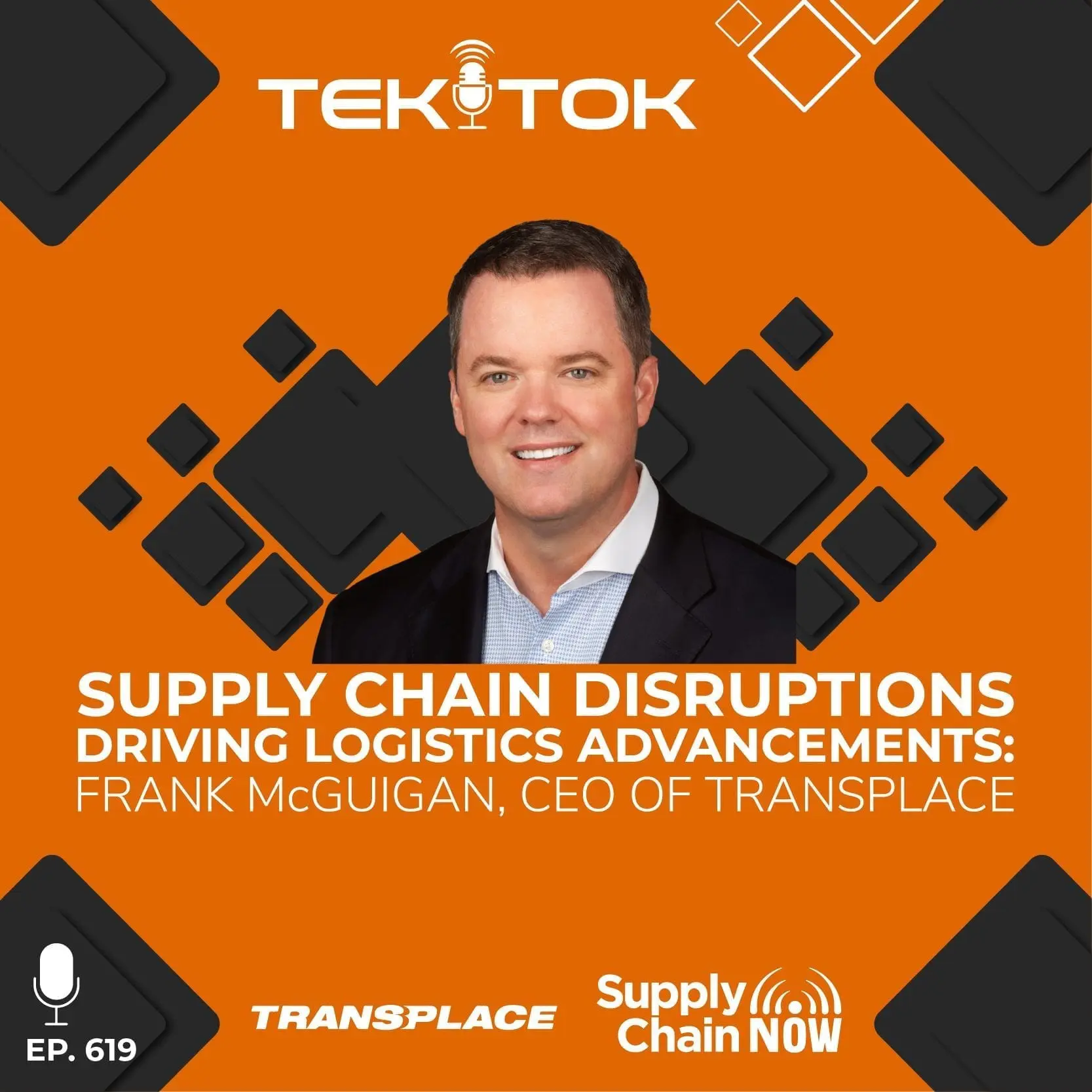Generally, we see that you should get at least a 5X return on your total supply chain transformation investment. And, then determine how you calibrate that with goals that can be measured and monetized.
-Bill Benton, Co-Founder, GAINS
Episode Summary
GAINSystems Co-Founder Bill Benton is setting big targets—and helping customers hit them. As companies clamor for more digital transformation — yet struggle for years to see any ROI — Bill’s team is taking a discovery-based approach to help customers speed time-to-value across three, six and twelve month targets. Lucky for us, he’s also sitting down with Karin on this latest episode of TEKTOK to detail the GAINSystems approach and provide an in-depth look at how to derive tangible value, faster, from digital transformation efforts. Tune in for a can’t-miss conversation on best practices for everything from overall approach, tailoring targets across different business units, dealing with data and more.
Episode Transcript
Intro/Outro (00:01):
Welcome TEKTOK digital supply chain podcast, where we will help you eliminate the noise and focus on the information and inspiration that you need to transform your business impact supply chain success and enable you to replace risky inventory with valuable insights. Join your TEKTOK, host Karin Bursa, the 2020 supply chain pro to no of the year with more than 25 years of supply chain and technology expertise and the scars to prove it. Karin has the heart of a teacher and has helped nearly 1000 customers transform their businesses and tell their success stories. Buckle up is time for TEKTOK powered by supply chain now.
Karin Bursa (01:14):
Well, welcome back supply chain movers and shakers. Karin Bursa here, your host for TEKTOK, the digital supply chain podcast. You know, as supply chain leaders, we need to be nimble and we need to leverage the available resources and capacity to provide superior service, increase efficiencies, and balance a multitude of variables across our network. And don’t forget, we’re making every attempt to mitigate risk.
One of the core benefits in the area of digital supply chain technology is the ability to help you replace risky inventory with valuable information. And one of the hottest topics right now is digital transformation. In October of 2020 a McKinsey report came out just six months after the onslaught of the COVID epidemic. McKinsey found that in that six month window of time, digital supply chain transformations had taken a quantum leap forward. The McKinsey analysis showed a level of transformation that historically would’ve taken over four years to achieve.
Karin Bursa (02:31):
That should ignite a sense of urgency around supply chain transformation opportunities. It’s not just about reducing cost. It’s about increasing agility, increasing resilience, and expanding visibility across our global networks.
So, as transformation becomes more and more about being competitive, I’m looking forward to what our guest has to say on the topic of Supply Chain Transformation. We are going to dive a bit deeper and discuss how we should look at time to value as a component of our transformation initiatives. Bill Benton is an expert in this field. You and the team at GAINSystems have helped hundreds of companies overcome a variety of supply chain challenges, increase visibility, accelerate inventory turns and automate to plan with more precision and less effort. It’s great to have you here with us today on TEKTOK!
Bill Benton (03:42):
Well, thanks, Karin. It’s great to be here. It’s always nice to see you and, I appreciate the opportunity to share some perspective today.
Karin Bursa (03:49):
Bill, tell a little bit about GAINS and your mission to help companies Move Forward Faster before we dive into our topic.
Bill Benton (03:59):
Our mission in a phrase would be to democratize world class planning. GAINS has been focused on time to value in a pragmatic phased approach for years. We have helped driving innovations with proven advanced methods that work for the largest and most complex organizations in the world like Honda Motors or Rockwell Automation. And, we’ve packaged our planning software to bring those innovations and efficiency to mid-tier companies that have great room for improvement in a digitization process. We’ve help them get out of spreadsheets and into cohesive planning platform that leverages machine learning, automation, AI prediction, et cetera. And, GAINS has done that in a way that’s scalable and repeatable. Happy to chat more about what process, time to value, which really starts before anybody decides to implement a solution like GAINS, for example.
Karin Bursa (05:14):
Hold on to that idea, Bill! Can you give me one or two customer examples of how the impact is measured in transformation? I want to start us off with the end in mind. Give our TEKTOK listeners a feel for the type of supply chain transformations that have been achieved with GAINS.
Bill Benton (05:40):
Let me start with a growing, mid-size manufacturer named Stuller. They’re one of the largest jewelry manufacturers in North America. At the outset of the pandemic Stuller had, as many people can relate, very significant disruptions in their global supply chain. They have a broad supply network with approximately 50 countries spanning from India to South America, to Southern Louisiana. And they had to pivot very quickly in order to sustain what turned out to be heightened demand, during period. Initially, thinking they would see a dip in demand, the increase was surprising. So there were a few aspects of that first, Stuller made a decision that to collaborate effectively with suppliers and have supplier planning portal, they needed cloud-based system that could implement quickly. GAINS was able to have Stuller up and running within eight weeks of initiating the project.
Bill Benton (06:46):
We were able to leverage integration and map ERP data flows and even data that was coming from Excel. We repurpose those to feed into a GAINS single canonical data model for planning. And, prioritized our efforts to help Stuller get some quick wins of upfront. And then in their case, we had a three stage implementation process with that first stage happening rapidly.
Karin Bursa (07:27):
That’s a great example. I’m already hearing in the conversation, that your team mapped out the transformation initiative to get some quick wins out of the gate. I also expect that in that time of so many disruptions, there had to be an opportunity for Stuller to rebalance their network or consider alternate suppliers – correct? Very interesting example there.
Now, when you hear the word transformation, when a customer comes to you and says, “We’re in the midst of a supply chain transformation.” What things come to mind? How do you help coach them through that process to put a plan in place?
Bill Benton (08:26):
Well, a lot of it goes back to the Pareto principle. We help them find those quick wins up front. We focus on time to value helping them calculate a ROI but also because some projects can stall or even fail because of inertia. Right? So to the extent that there can be tangible wins that create success milestones – it’s positive for team morale and continued investment. Every company and project team is different. People learn new skills or their roles evolve. So, you need to take your corporate culture into consideration as well as the availability of data, integration, complexity, training requirements, to find that sweet spot of the of items that are high impact and high feasibility.
Karin Bursa (09:38):
Is there always a common starting point or is it different based on each business?
Bill Benton (09:51):
You know, there’s no one size fits all formula, frankly.
Bill Benton (09:57):
Some people might think you have to start with sales, forecasting and inventory polices. Then you do supply planning. Then you blend it together, S&OP and then maybe layer in some multi enterprise inventory optimization or network design. Right? When I was a student learning the foundations of supply chain and planning, that’s how you think of things, right? There is a sequential flow. However, at Rockwell Automation, we started with inventory optimization because they had simultaneously a need to reduce inventory surplus in some areas and invest in other areas where they needed more resilience – especially where there are only a small number of interdependent suppliers that might have a significant time to recover in the event of an unexpected event. And so, Rockwell Automation started with inventory optimization and then move to supply planning, and then into S&OP.
Bill Benton (10:56):
We’ve started with supply planning and other customers have started with demand planning, collaborative planning, etc. At GAINS we have something we refer to as the Proven Path to Performance, or P3 methodology, which is really a discovery and data driven approach for onboarding. We take time to discover where both pragmatically and empirically the opportunities are and let that guide us. And interestingly, that can often be quite different from the customer’s original set of presumptions. That analysis is in our DNA to work from a data and an empirical perspective forward.
Karin Bursa (11:55):
I imagine in the discovery process, you’re able to uncover some hidden gems in helping your customers start their transformation journeys. Bill, tell us a little bit about time to value. I’ve been in this industry a long time. You’ve been in the industry a long time. We’ve certainly all heard the stories about implementations of supply chain technology that have lasted for three years or four years. And I’ve gotta tell you, that’s concerning to me when I hear these long-time horizons. My first thought is by the time you finish, it’s time to start all over again, because you need to take into consideration the fact that your network is not fixed. Supply chain networks are living and breathing – flexing and contracting. There are a multitude of different variables to be optimized at any point in time.
Bill, when you and the GAINS team are accelerating time to value, are there are multiple stage gates or intervals where benefits occur? How does that work?
Bill Benton (13:24):
Yeah, we think of it as a multi-phase, telescoping, horizon approach. So, there should be something tangible within the first quarter. What can we help to show both internally and potentially to the ecosystem within the first three months? If you start with that premise, and then you fit to that, as opposed to saying, here’s all the functions we want to address. Now let’s try to do a left to right scale on the timeline. We feel you come up with a very different set of priorities. So, if you start with a fixed date and look to what’s feasible within that range. We believe that first phase should be quite short within a quarter, it could be something like “we want to reduce our lead time forecast variants by half.” So, if they have been predicting a long procurement lead time, cutting that by 60% could be a very tangible win, right?
Bill Benton (14:34):
The other element with time to value is prioritizing an initial win, but also working parallel tracks that are all mutually reinforcing. Generally, we see a three phased approach, three, six, and 12 month milestones with a continuous improvement cycle of maturation. Bill Gates says, you chronically overestimate what you could do in a year and underestimate what you could do in the decade. Right? To sustain decades of improvements, you’d need to have tangible wins in the short run. I don’t want to focus too much about GAINS specifically, but generally speaking, having a solution and a strategy for implementing it, that leads to those early tangible wins we think is crucial.
Karin Bursa (15:34):
One of the big challenges with lengthy projects is that they delay the return on investment and you run the risk of getting distracted by another shiny object, or you lose the momentum and focus. With these shorter, project phases (I think you said maybe three, six and 12 month horizons) you are able to build that knowledge base within the customer which is important for that transfer of knowledge. How do you help them measure the incremental improvements and keep the momentum going?
Bill Benton (16:39):
Well, I think the answer is in probably three distinct sort of perspectives. Bringing them into a dialogue early and finding out what they’re comfortable with. That might mean using the Preto principle as well, rather than trying to do a full integration, maybe manually updating key parameters for the top 10% of changes is a viable approach. So what can we do? That’s viable for it and operations and leverages a lot of, so being a pragmatist there, the second perspective would be operationally, right?
Bill Benton (17:43):
You’re going to have the zealots that want to improve things. The show me, which are I’m open to it, but I’d love to see somebody else try it. And then the skeptics. I’m overgeneralizing for the purpose of emphasis here, but you’re looking for tangible examples. Don’t ask me if the algorithm’s better. Let me show you some specific cases of improvement that the zealots can show to the show me who can then share with the skeptics. And so it’s a lot easier to promote process and culture change with really tangible, understandable, uh, positive examples. Um, and then lastly executives, right? So how does it move the needle for high level business objectives, whether that’s fill rates, customer service, working capital goals, inventory turns, usually there’s going to be some goals.
Bill Benton (18:51):
And if you can show something tangible, even if it’s with a subset, say we’re gonna carve out 10% of our vendors or this one production manufacturing facility. And, where they can extrapolate that quick win to say, all right. So now we know if we were to roll this out, here’s what it looks like. And here’s how it would support our strategic objectives. So, I think those are the three different perspectives. And, having this quick time to value can build momentum in all three areas, but also being pragmatic about it.
Karin Bursa (19:26):
Ten years ago, we would talk in terms of people, process and technology. Today, it’s people, process, technology and data. The availability of data has changed exponentially. It’s not uncommon to hear, “I’m drowning in data and starving for insights.” How do you help GAINS customers to harness data and to interpret it in ways that can be meaningful from a supply chain planning process? For example, if you want to improve short term demand sensing or work more collaboratively with your suppliers, you might incorporate different demand signals or available market data for things like new housings starts or some other type of meaningful syndicated data. What does that look like as a part of this transformation process?
Bill Benton (20:42):
I think there’s a sort of three prong approach. Traditionally, let’s say here’s some solutions analytics we want to put in place. Now let’s do a mapping exercise and say, here’s all the data we need to utilize these functions. As opposed to saying, here’s the data we have, what functions can we leverage in light of that right now that that should evolve to. How do we prioritize data gaps between what we have and what we’d like, based on the broader set of analytics or so solutions that we want to bring to bear? Forgive me for being a bit of a broken record, but go back to the time to value.
Bill Benton (21:38):
One prong is saying, here’s the data we have. What can we do? The second prong is given the additional things we’d like to do, how do we prioritize those data gaps based on the greatest return on effort of acquiring that data. And, the third prong is, and from a GAINSystem’s perspective, we think of it as two parts of what we could bring to reduce the amount of effort to decide what data is needed and to acquire it.
So the first part is how can you self-parameterize? So a lot of solutions require, okay, here’s some data, how do you cleanse it? How do you detect anomalies? How do you fill gaps? We provide tools to do those things. And then how many levers you have to pull just to get an analytics set up and running, right? The other that’s where the self-parameterization comes in. Can you get plausible output without having to set, dozens of switches or hire third parties to do so?
Karin Bursa (22:58):
Bill, when you talk about self-parameterization, does that mean these “dials” are systematically set or that a GAINS expert is coaching the client’s team, the customer’s team through specific set up steps? What does that look like from a pragmatic perspective?
Bill Benton (23:21):
Well, it means allowing, but not requiring, set up to get reasonable results. The GAINS solution has built in intelligence to recommend a default approach for everything, whether that’s stocking policy, where, and at what level, for example, in the bill of distribution or bill of materials (BOM) of stock, what should the service level be? What’s the type of demand data for this new product? Is it seasonal or not? For example? So these are all things where the solution should have a baseline automatic recommendation, but also a glass box approach where you can see what that is, why and fine tune that. So to answer your question, it’s both, you start with an automated self-parameterized, configuration and then do continuous rounds of fine tuning and training for greater precision over time.
Bill Benton (24:25):
The other half of this third prong is bringing data to the table, right? For example, within GAINS, we do what we call continuous network flow optimization. So, as you change suppliers, as you add customers, lose customers, add products, how do you optimally flow? Additionally, things like freight rates change a lot. And, if you need to hire a consultant to do a periodic process where they collect all these data around freight rates, tariffs, capacities, etc., the shelf life on that, model is going to be quite short and some of the data has already aged by the time you’re getting the results. So we’re bringing “new data” like freight rates and visibility to container movements into the plan without the customer having to provide those information and to do that on a continuous basis, as opposed to a periodic basis.
Karin Bursa (25:19):
That’s very powerful. Especially around supporting opportunities for automation, right? Supply chain solutions have an opportunity to impact business decision-making with automation or accelerating certain business processes. And I think that this has become increasingly important, especially in today’s market where talent is a real challenge. Supply chain planning talent is a new constraint to be managed. And, we need to be looking for those opportunities to automate where we can.
Talk to me about automation. I like this idea of self-parameterization and that’s clearly accelerating the initial setup in deployment, but then that ongoing feed of important data about movement of inventory, right? You mentioned containers or inbound notification, and I assume outbound would work very much in a similar fashion, but there’s lots of opportunities to automate. Are you seeing that as a part of the transformations that your team is working on?
Bill Benton (26:32):
The answer is yes. And the speed and degree of automation is going to vary significantly by each individual organization. So for example, on the fast ends, one of our customers named Graybar, they are a very large North American distributor. Within 12 weeks Graybar had 98% of all of their purchase and transfer lines automated. They took a highly selective approach to manual intervention. In other cases, it might have taken a client two years to get to that point. And, when you’re bringing machine learning into it, this concept of sort of X-AI, which is called explicable AI, users are trusting the black box and automation more and more. We are excited to bring automation to the table straight away but recognize it will get adopted differently (or at a different rate) by some customers.
Bill Benton (27:40):
For example, a client might be comfortable automating purchase lines that have less than $5 value. Nobody’s going to lose their job over that. But we can see that ultimately, this is a nice little microcosm to prove automation works and then move up to purchase order line items of $500 or $5,000 or $50,000. Manufacturing work order automation, when we’re looking at, doing automation, even when we’re up at 90 plus percent of capacity utilization. Where people usually want to micromanage those things and rough cut scheduling because there’s scarce componentry or scarce capacity. So, so an incremental approach that’s paced for the organization, but always greater than zero.
Karin Bursa (28:30):
Bill, getting back to time to value. You mentioned eight weeks to deploy in one example. And just 12 weeks seeing some pretty significant automation. What is unique about GAINS and the way either the solution is designed or you’re implementing or onboarding customers? Help us understand those aspects. So some of our listener may not be familiar with GAINS.
Bill Benton (29:08):
So we we’ve talked a lot about an approach right. Which is phased and feasible. So, GAINS is a supply chain platform that uses a single canonical data model. So these are not discreet sequential modules. And this wasn’t built through acquisition of distinct products designed by different R&D organizations that interface with one another. We believe there’s significant interdependence across everything from, network design and network flow all the way through sales and operations execution. For example, how do we allocate scarce componentry, scarce finish goods, to specific orders we have right now? And how do we do profitable to promise? So between the strategic end of how do I design product flows and locations in my network through to how do I allocate this particular order.
Bill Benton (30:11):
On an order-by-order event-driven basis, GAINS has a single canonical data model and algorithmic set to handle that. It includes, demand forecasting, traditional, there’s still a lot to be said about, history being a prologue, but there’s also the need to blend that with demand sensing and demand shaping. And you mentioned some things around data, we bring to the table. For example, with demand sensing, GAINS is connected with the federal reserve economic database. So we can look at things like housing starts or interest rates or oil price features, and determine through machine learning, which can scour hundreds or thousands of different types of predictive features as they’re called and determine which ones are run. And you don’t have to feed us that data, right. That’s already, that’s part of the build in part, and that’s a big part of time to value.
Bill Benton (31:08):
Progressing from demand, forecasting, sensing, and shaping and collaborative demand, planning into comprehensive inventory optimization, which, which we believe needs to be multi-echelon, whether that’s within a bill of material within a bill of distribution or within both. And that’s quite crucial because then here’s an example of interdependence based on whether where your stocking is going to determine what your critical planning period for inventory deployment. If you don’t stock a raw material that has a four month lead time using a demand model, that’s really helpful over a 28 day period, isn’t really going to help you make optimum raw material decisions over four month horizon. So how can you fine tune the demand planning based on your lead time horizons for planning where you’re looking at cumulative lead times in light of say inventory stocking strategy. That’s another area where we think doing this all sequentially and periodically really breaks down, particularly in times of high volatility, like we’re seeing right now where, steady state conditions, this might work in a spreadsheet outside of that.
Bill Benton (32:19):
And then how does that feed into supply planning so that as events change, whether it’s a late container, or west coast port congestion, lead times doubling due to scarcity. Or, customers shifting demand rapidly because of pent up demand, post pandemic, for example, these are all real life examples we’ve seen. How can you synchronize that supply plan on an event driven basis with those other elements? And then lastly bringing it into sort of a cohesive S&OP where you could do scenario planning of understanding in times of scarcity, you’re ability to serve a new customer. And they’re recurring demand in these product lines, what’s the impact on my profitability, what do I have to air freight in versus ocean freight in to make that happen and to meet their requirements? Conversely, how can we optimize around different inventory targets and what does that mean, to our overall fill rate and how can we achieve this, uh, optimally?
Bill Benton (33:27):
This advantage of single data model with scenario planning, execution, working backwards all the way through design and doing that in a single model where all the data, is consistent and interactive and interdependent is really a lot of what’s what GAINS is about. Since we built the solution organically being able to do it at a fraction of the time and the cost of the, uh, of the most expensive vendors out there. So that’s our thought of bringing world class solutions in a democratized way to the, to the broader market and the larger organizations, to the extent that, you know, they buy into that vision.
Karin Bursa (34:09):
You mentioned some pretty sophisticated capabilities. One that I want to talk about for just a minute is multi echelon inventory optimization (MEIO). Lots of folks say they do inventory optimization. Tell us what GAINS delivers around multi echelon inventory optimization? We’re moving beyond finished goods, right? Beyond finished goods across the network.
Bill Benton (34:48):
There are a number of factors within MEIO such as resilience elements, there’s postponement objectives. There’s the ability to increase your breadth and variety of finished goods that are more personalized by having really robust, semi-finished good inventory strategies. At a high level, you could think of multi echelon as starting with the latest point in a distribution chain. That’s closest to the point of demand or point of consumption and rolling up through one or two levels of distribution, which goes to a manufacturing plant, which might go through 10 levels of bill of material all the way to the purchase component or raw materials. Your stocking decisions at the raw material level cascade all the way down to your fill rate capabilities, your service capabilities, and your inventory requirements down at the lowest level, near the point of sale.
Bill Benton (35:51):
This is an insoluble problem, right? The common complexity of do I stock here, here, here, here, and what are the impacts? And if I stock the raw material, does it shorten my lead time here, but I’ve got a lot of stock in these materials that have a cost and storage requirements. Understanding how these tradeoffs work comes from MEIO. GAINS was a pioneer using different types of AI methods, as many as two decades ago. We can run hundreds of times as many scenarios as we used to be able to do, but using things like genetic algorithms to get to a near optimum solution of what’s the best tradeoff for resilience of stocking long lead time, procured items, short lead time, semi-finished good. Do we want to stock the finished goods or leverage postponement to box and label to order?
Bill Benton (36:41):
How do we maintain flexibility? And then how far do we disperse, uh, or deploy inventory through the network, right. Can we pull it as needed for high cost, low frequency products, or should we deploy it to, to the consumption point? So we’re not occurring a lot of expedite or extra transport. We can batch things and move things in full containers and then, and then ship in, in boxes, you know, the interesting part of these flows change over time. Most people might set these policies once a year because it’s very difficult to even get an approximation, GAINS looks at them continuously based on multi echelon inventory optimization. Here’s the top 5% of materials that where you should either stop, start stocking, stop stocking these, or significantly change their target fill rates in order to get to more optimum set of tradeoffs between expediting inventory and service.
Karin Bursa (37:45):
So, obviously that’s a, that’s a big part of driving some ROI. One of the major factors that get measured in any of these transformation initiatives is the investment in inventory or inventory turns or lead time, as you mention, as well as an element of driving better service. So the ability to bring all of that business strategy together and then continuously optimize that process has a high value proposition.
Bill Benton (38:13):
But imagine Karin, if you just change your network design, that’s going to have a profound impact on all of your assumptions and inventory optimization, which should also recognize, let’s say new demand, sensing data. Whereas most inventory optimization methods are just looking at history. And presuming it passes prologue and, and demand averages apply well, that doesn’t work very well say for new products or when there’s significant shifts in demand from one type of, of product line to another, say, due to different types of material costs with commodity price changes, et cetera. So, that’s another reason where we think looking at these in isolation, a they have short shelf lives, those models do, and the results do. And then secondly, they’re not near optimum because there’s a lot of oversimplifications driving.
Karin Bursa (39:14):
I think that those are really important points. Let’s recalibrate for just a minute. Let’s talk about time to value in these transformation initiatives. Bill, can you give us a benchmark? What should we expect? I mentioned the McKinsey study published in 2020, so six months after the world was rocked with a COVID shutdown. That study found that digital transformations and specifically in areas of supply chain had really accelerated and happened in a very compressed period of time. We’ve proven it can be done. The focus was there, and transformations can in fact happen quickly. What should we be thinking about as supply team leaders helping to get our companies to that next plateau or that next level of transformation? What horizon should we consider?
Bill Benton (40:21):
That’s part of this phased approach where you want to have quick wins over first quarter, more profound wins over six month period, and then longer term. And, what that is really varies. You know, we have a customer who had 40% of their customer deliveries, what they considered out of route shipments. So they’re having to ship and incur the extra cost of transport by fulfilling orders from something other than the most approximate ship location.
Bill Benton (41:02):
They had a lot more LTL shipments rather than full truck, much more mileage. So there are also sustainability issue to this, right? If businesses are concerned about minimizing their ESG footprint one approach is servicing demand from the nearest location whenever it’s feasible. Their goal was an inventory reduction. Their goal was reduced out of route shipping, which dramatically reduced final landed cost of delivering those orders to those customers. So they were able to understand the impact and make an inform business decision. Today, they are achieving a high fill rate at a very high premium. We’ve also seen similar inbound with air freight versus ocean freight, or LTL versus full truck. So to the extent that you can plan better, you can reduce the amount of inbound or outbound expediting. We have also seen 20% to 40% inventory reductions where we have helped customers solve the expedite problem with a lot of buffer inventory. There’s no extra credit for having more (inventory) than you need for a hundred percent service level. If you had held X units of a certain item over the last year, that would’ve been enough to fill a hundred percent of your orders in any given lead time period. If you have two X that extra X adds substantial cost but not additional value.
Bill Benton (42:30):
What GAINS is trying to emphasize is that it’s really more about an inventory balance issue, not an inventory reduction issue. Generally, we see that you should get at least a five X return on your total supply chain transformation investment. That’s the target. And, and then how do you measure that? Make sure that goals can be monetized. If we increase our perfect order fill rate — meaning shipping the amount requested, on time, from the ideal source, what does that mean? How can we describe that to our CFO in a way that she, or he would understand? That’s another important part of the approach that we like looking at is what’s that what’s the ROI attainment. That’s both a time function and a magnitude function.
Karin Bursa (43:27):
Again, lots of good things to consider, Bill. Right now, every company is grappling with exponentially higher distribution costs given the constraints in every area, whether it’s from a container shortage or port capacity or tucking availability. Many supply shortages are driven by production capacity, available personnel to work and distribution. A number of factors are coming into play there. Bill, you’ve given us a lot to think about. Any final words of advice on this topic of time to value? I love the metric that you provided of a five X expectation ROI. Any other things our listeners should consider as they look at their own transformation initiatives or plans for the future and calculating time to value?
Bill Benton (44:23):
The old adage “don’t let perfection impede progress.” What can we do now that is meaningful? Find quick wins that you can use as examples to build momentum. If people are coming with proposals where it’s going to take years to get to a meaningful and tangible set of benefits, maybe that’s good. But in parallel to that, you should be also thinking about how can you generate some quick wins along the way. Make sure that the solutions are geared towards reaching those specific goals and the provider has a track record of delivering.
Karin Bursa (45:11):
Great insights. Thank you for joining us today, Bill Benton, with GAINSystems. We appreciate you sharing some of your expertise with us on this important topic of digital transformation or supply chain transformation and time to value. Thanks again for we’re being with us today on TEKTOK.
Bill Benton (45:33):
Pleasure. Thanks for the opportunity to chat.
Karin Bursa (45:36):
Thank you to our audience for joining us today on TEKTOK where our goal is to help you eliminate the noise and focus in on the information and inspiration that you need to transform your businesses and replace risky inventory with valuable insights. We’ll see you next time here on TEKTOK powered by Supply Chain Now.
Featured Guests
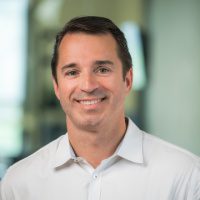
Bill Benton As Co-Founder of GAINS since 2012, Bill balances a steadfast commitment to healthy business growth and world-class product innovation that drives value for customers. He is dedicated to offering career fulfillment for the GAINS team and instilling a passion for social-responsibility to make a sustainable global impact (check out GAINS social & environmental initiatives). Bill is focused on GAINS continuous improvement methodology, sustaining renowned customer service, and relentlessly pursuing supply chain innovation for both the roughly 500 organizations that have already become GAINS practitioners and future partners. Recognized as an industry visionary, Bill is known for rolling up his sleeves and applying his expertise to creatively solve complex supply chain challenges utilizing machine learning, artificial intelligence, and advanced optimization. Bill enjoys fostering teams to help customers transform and optimize their supply chain operations to move forward faster. As a lifelong learner, Bill frequently engages with customers, industry leaders and world changers. Connect with Bill on LinkedIn.
